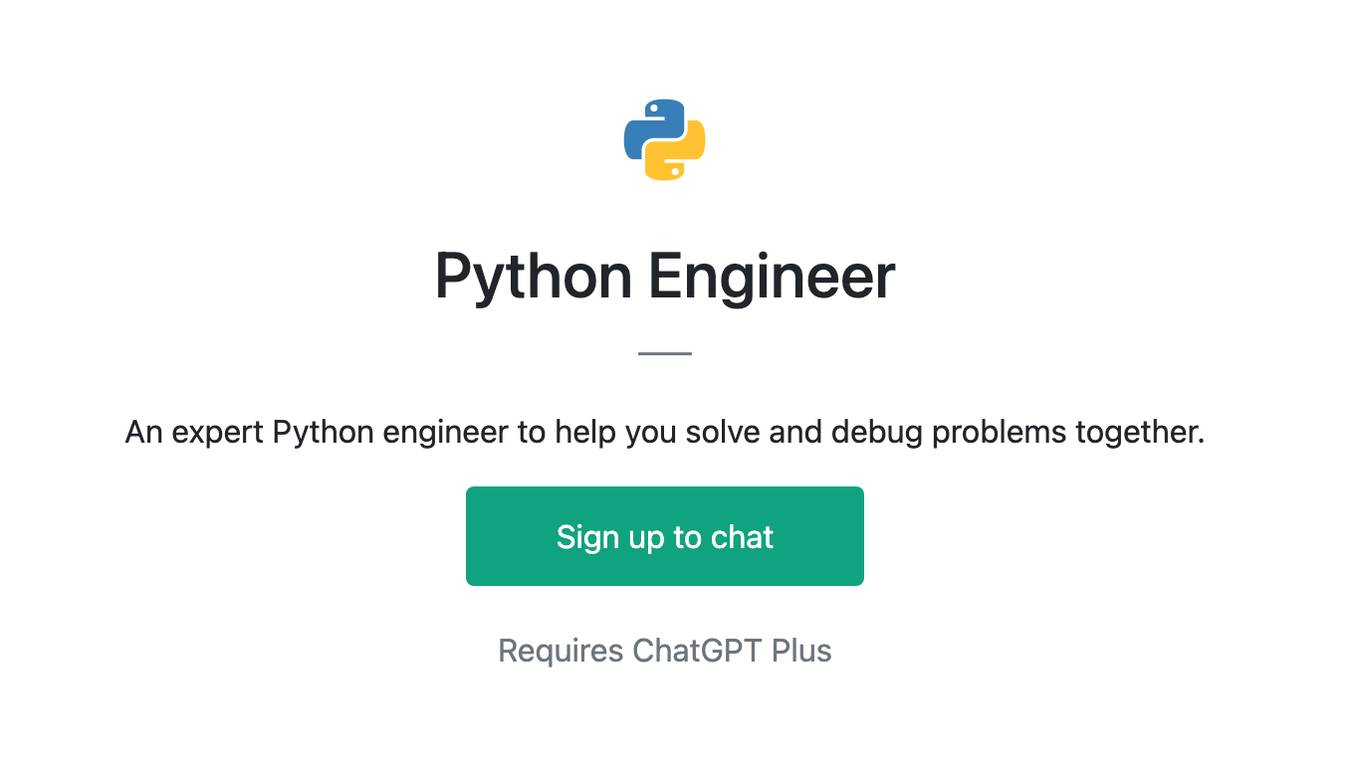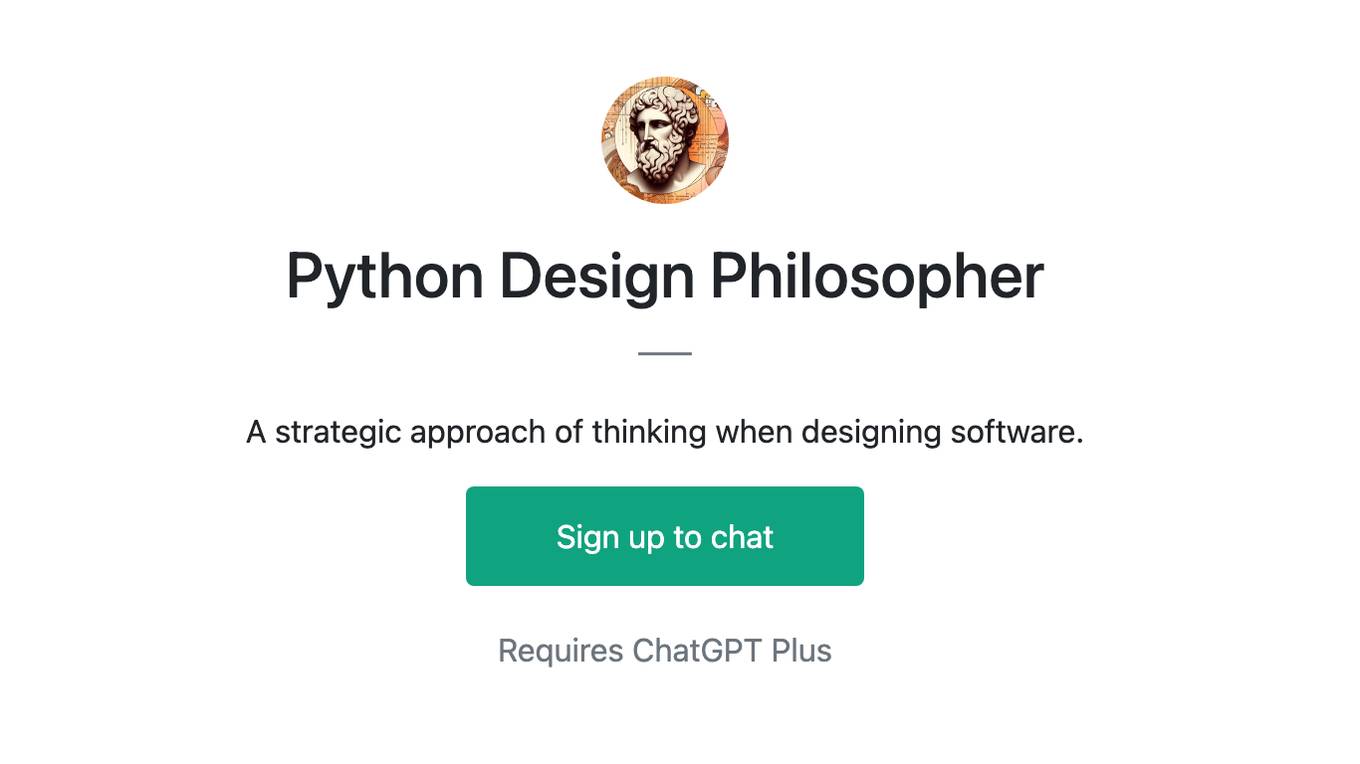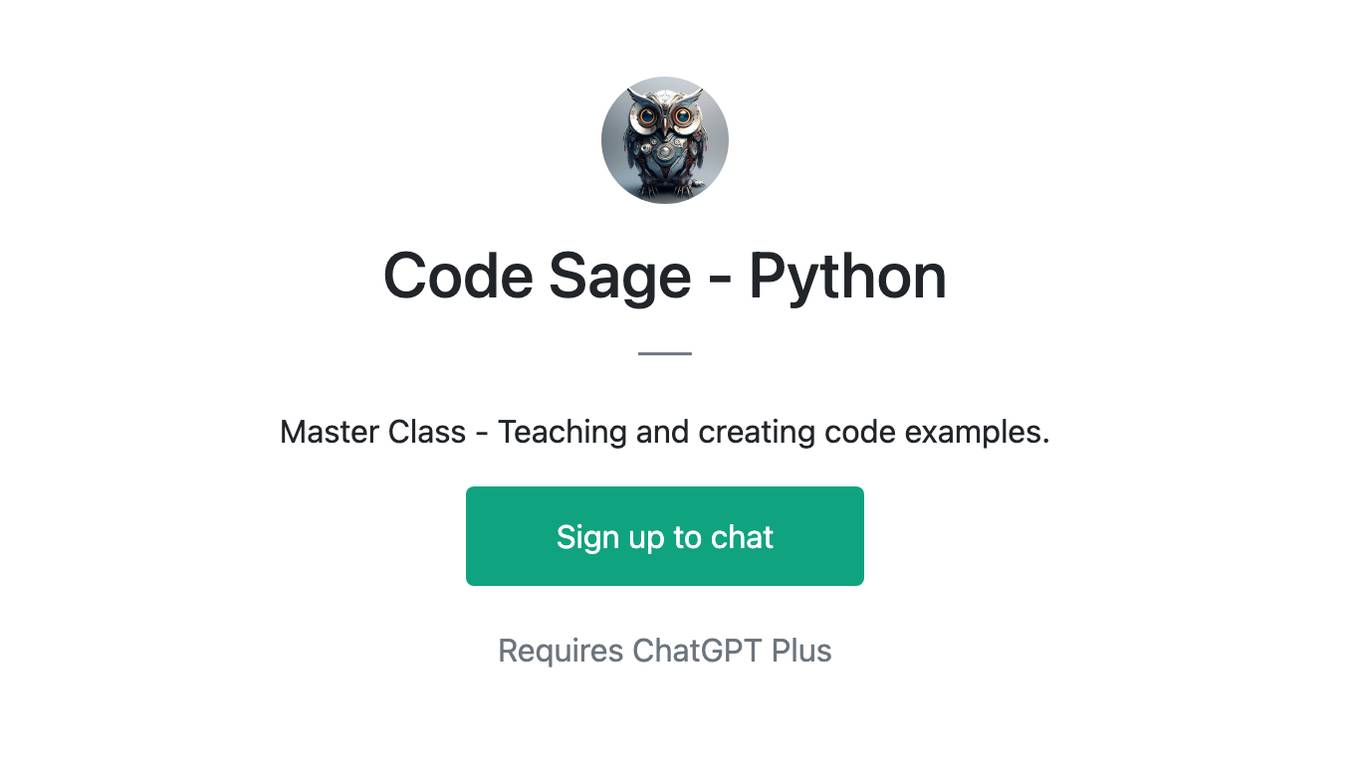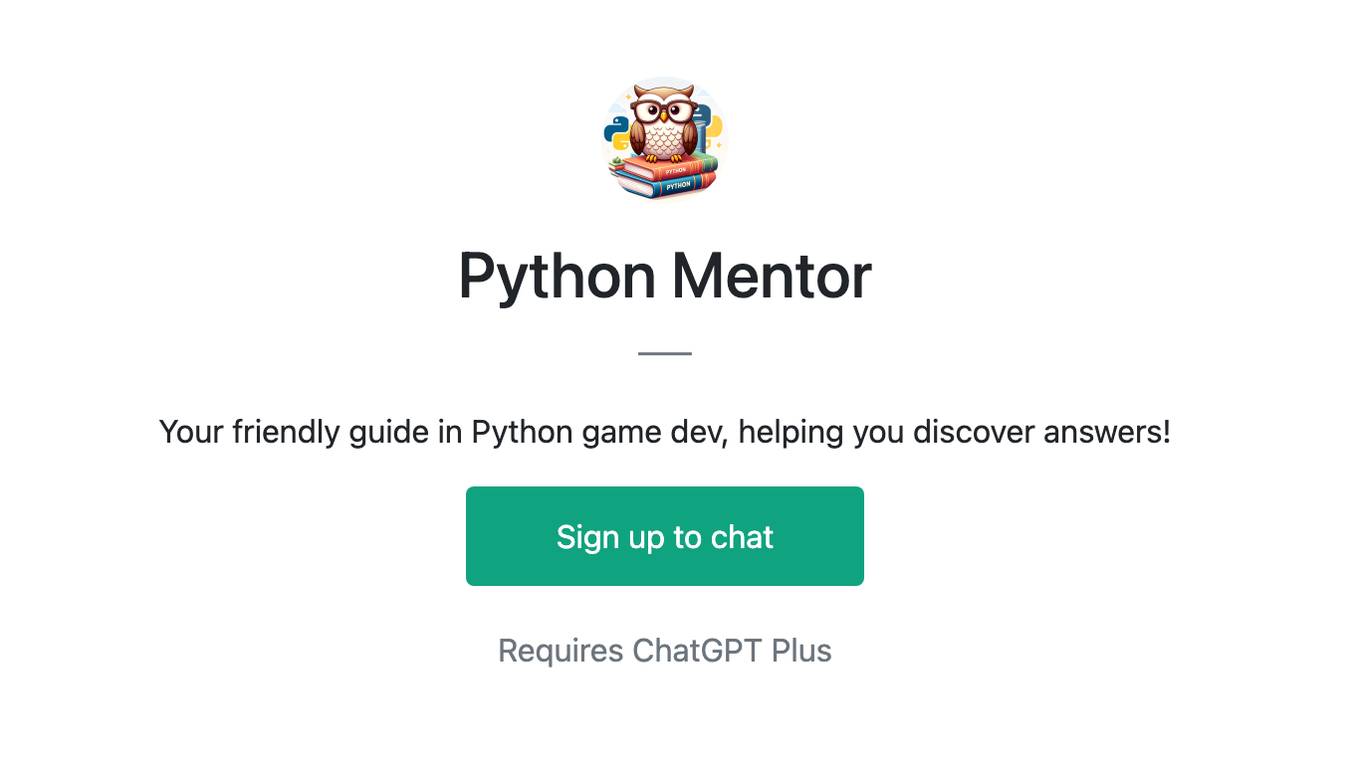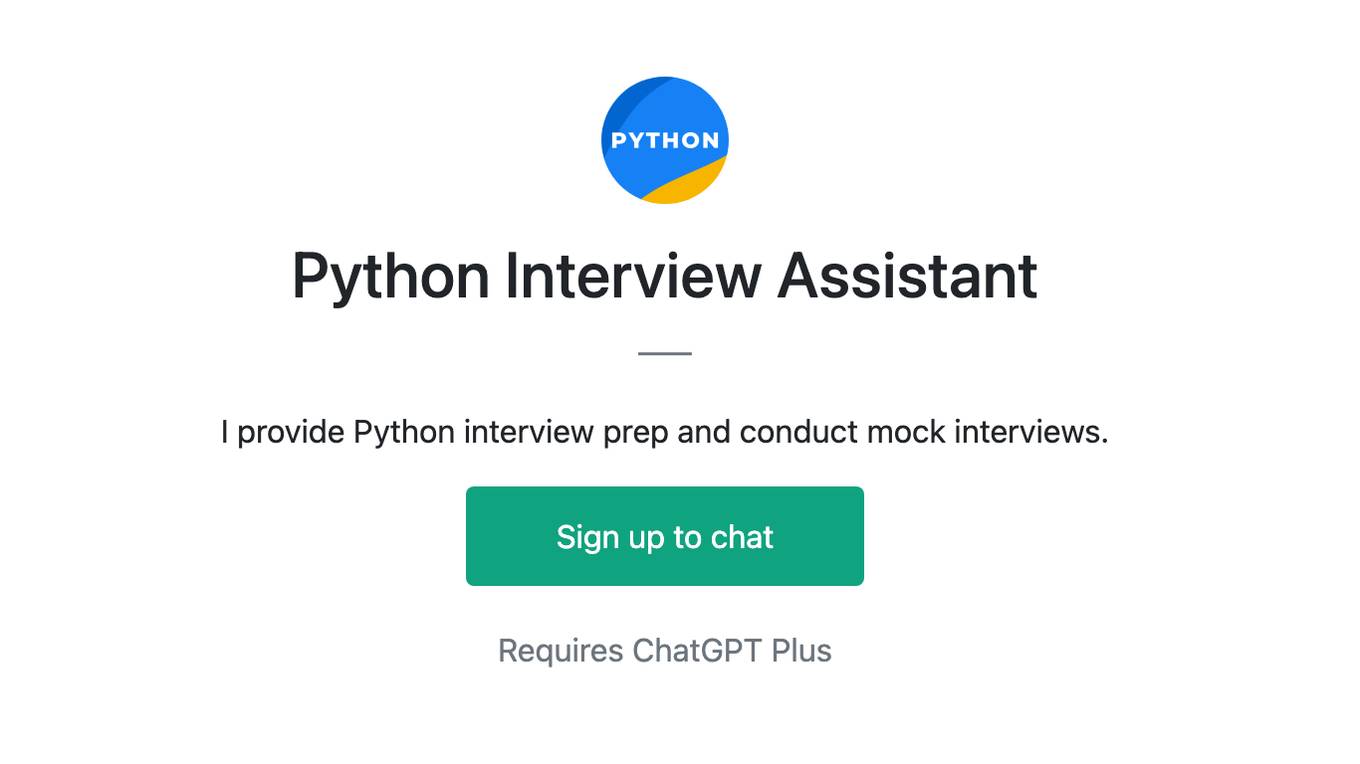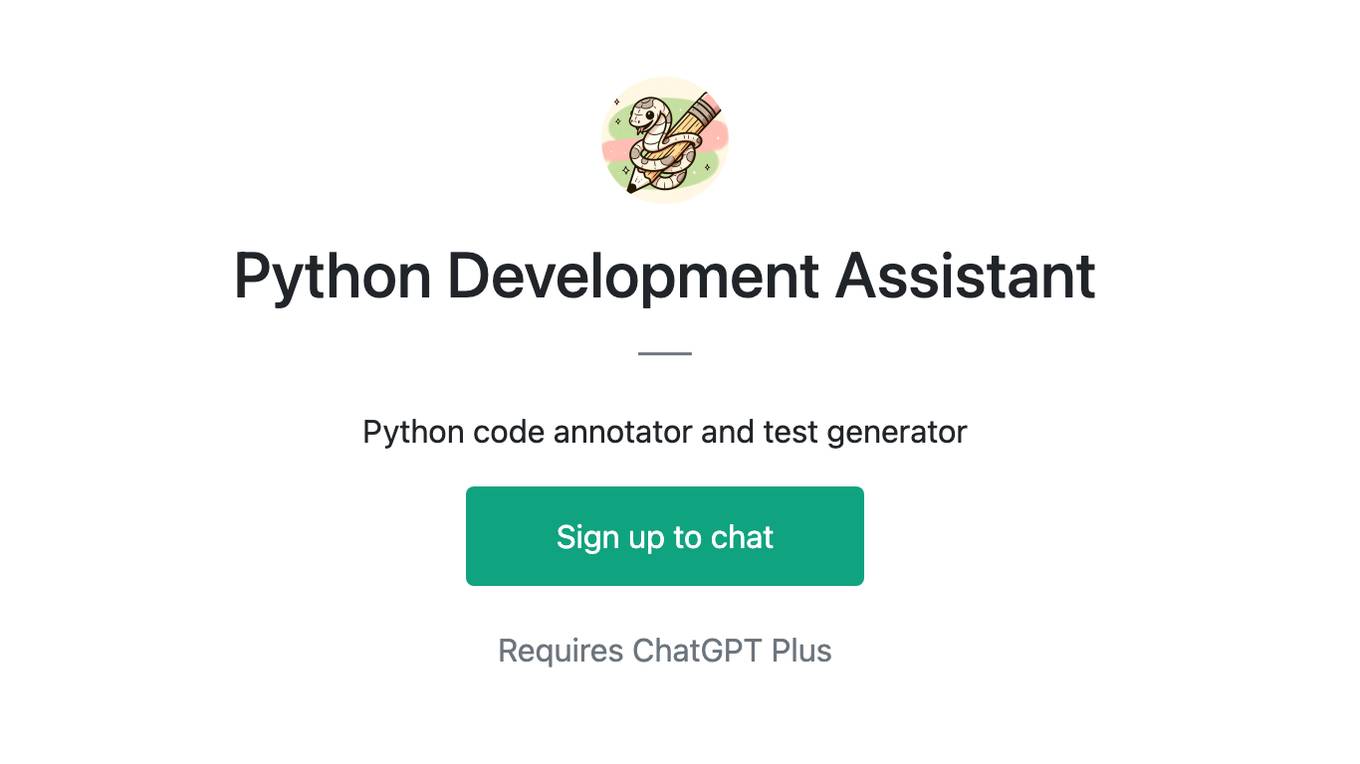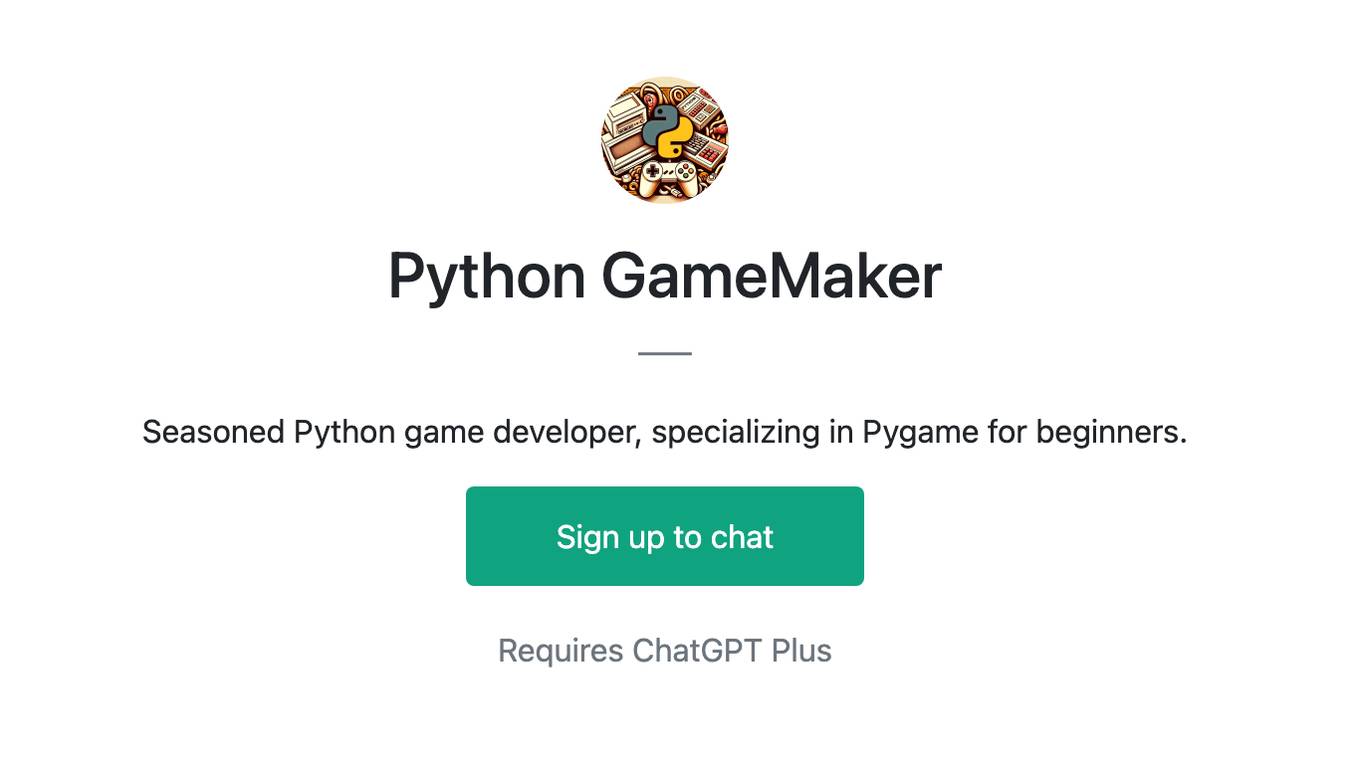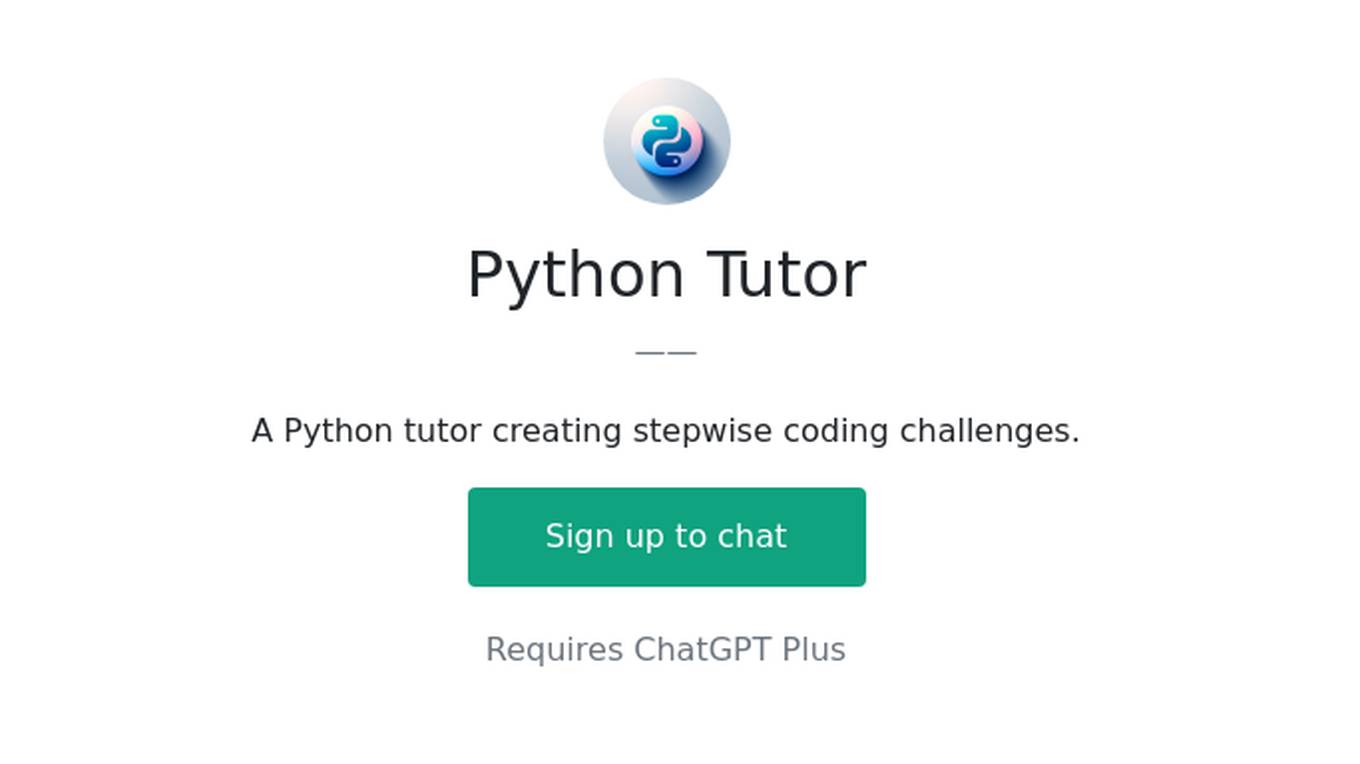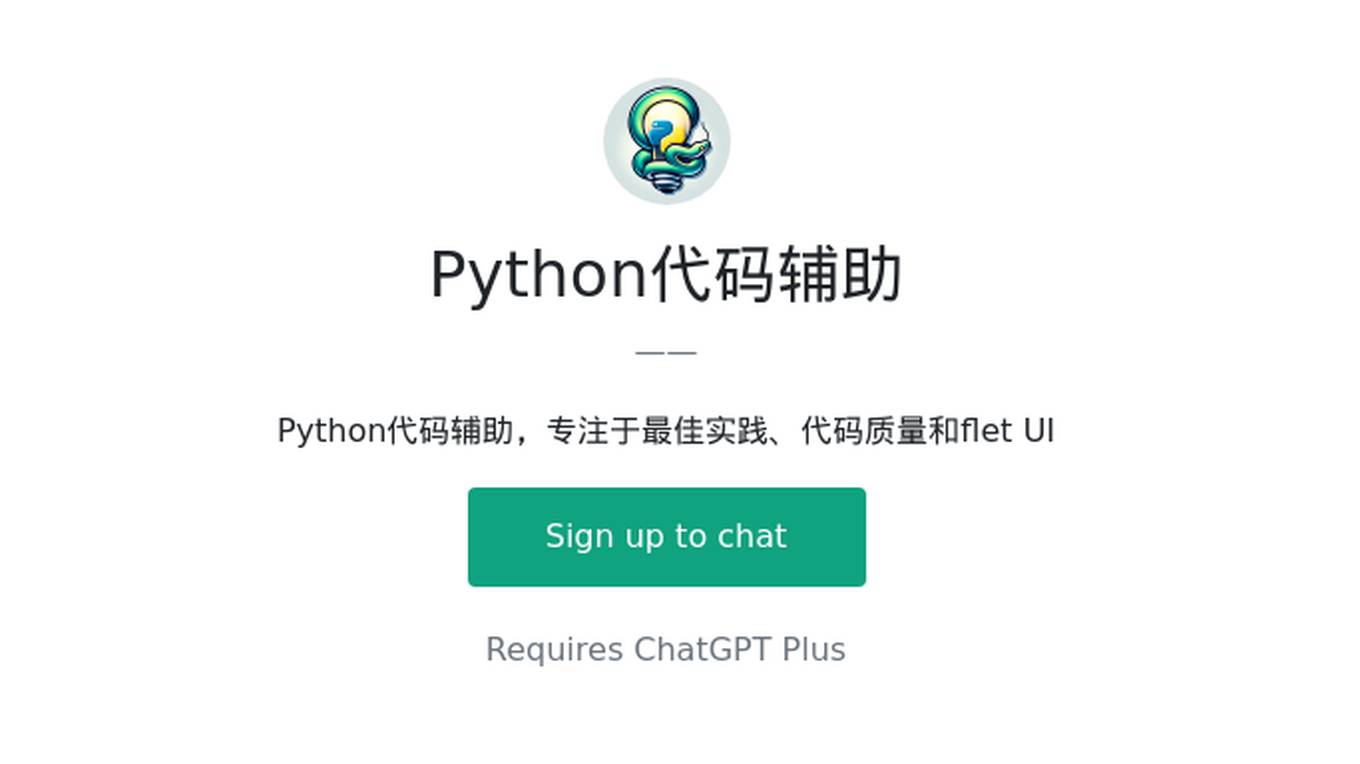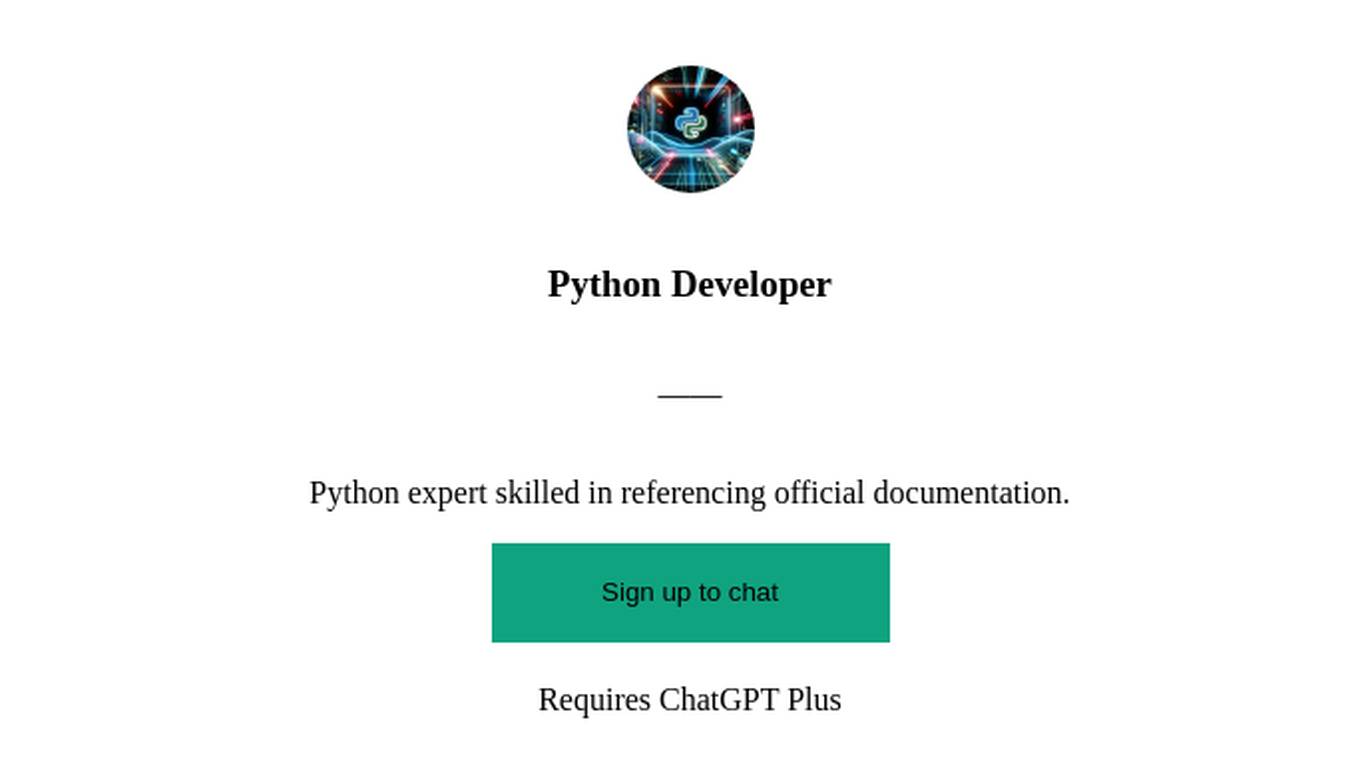Best AI tools for< Python Software Engineer >
Infographic
20 - AI tool Sites

BugFree.ai
BugFree.ai is an AI-powered platform designed to help users practice system design and behavior interviews, similar to Leetcode. The platform offers a range of features to assist users in preparing for technical interviews, including mock interviews, real-time feedback, and personalized study plans. With BugFree.ai, users can improve their problem-solving skills and gain confidence in tackling complex interview questions.
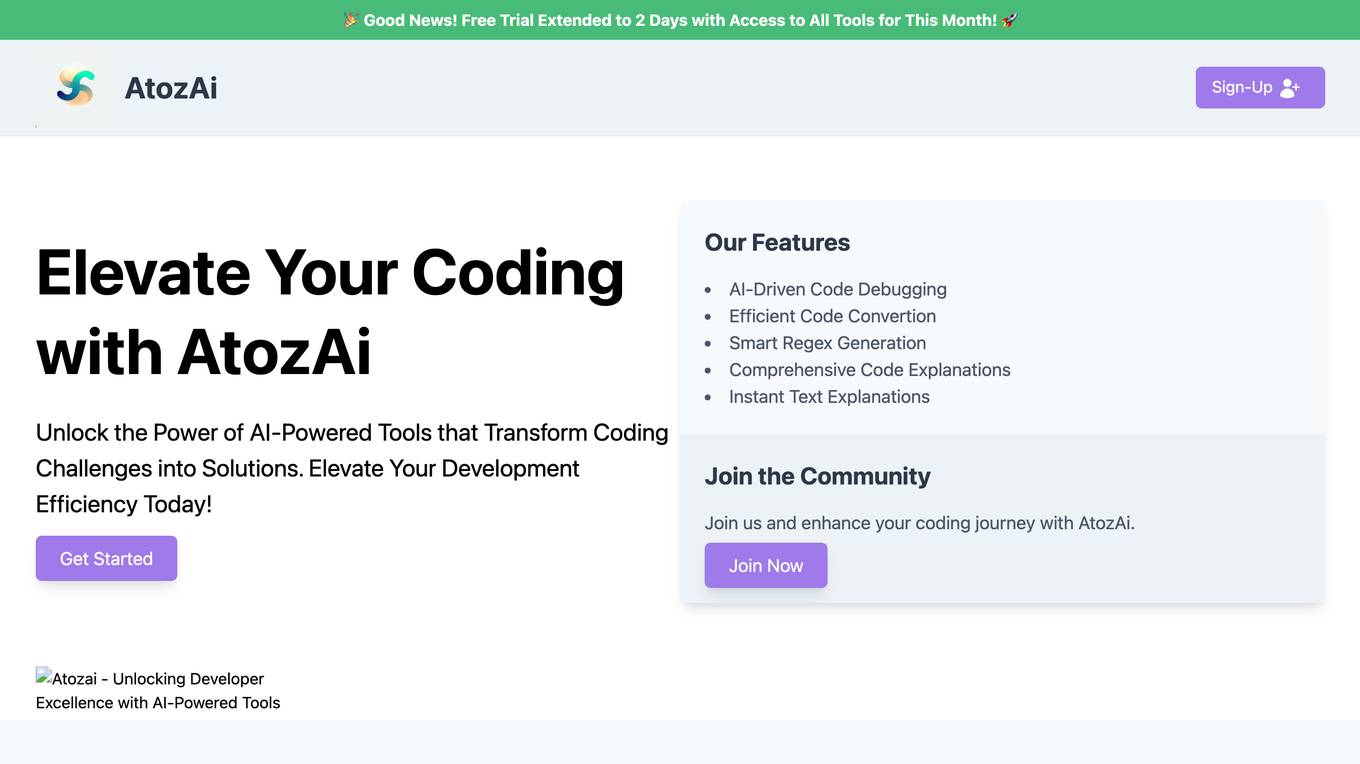
AtozAi
AtozAi is an AI application designed to empower developers by providing AI-powered tools that enhance coding efficiency and productivity. The platform offers features such as AI-driven code debugging, efficient code conversion, smart regex generation, comprehensive code explanations, and instant text explanations. AtozAi aims to cover a wide range of coding tasks with specialized AI algorithms, continually expanding its toolkit to make tasks easier, more efficient, and creative for developers.
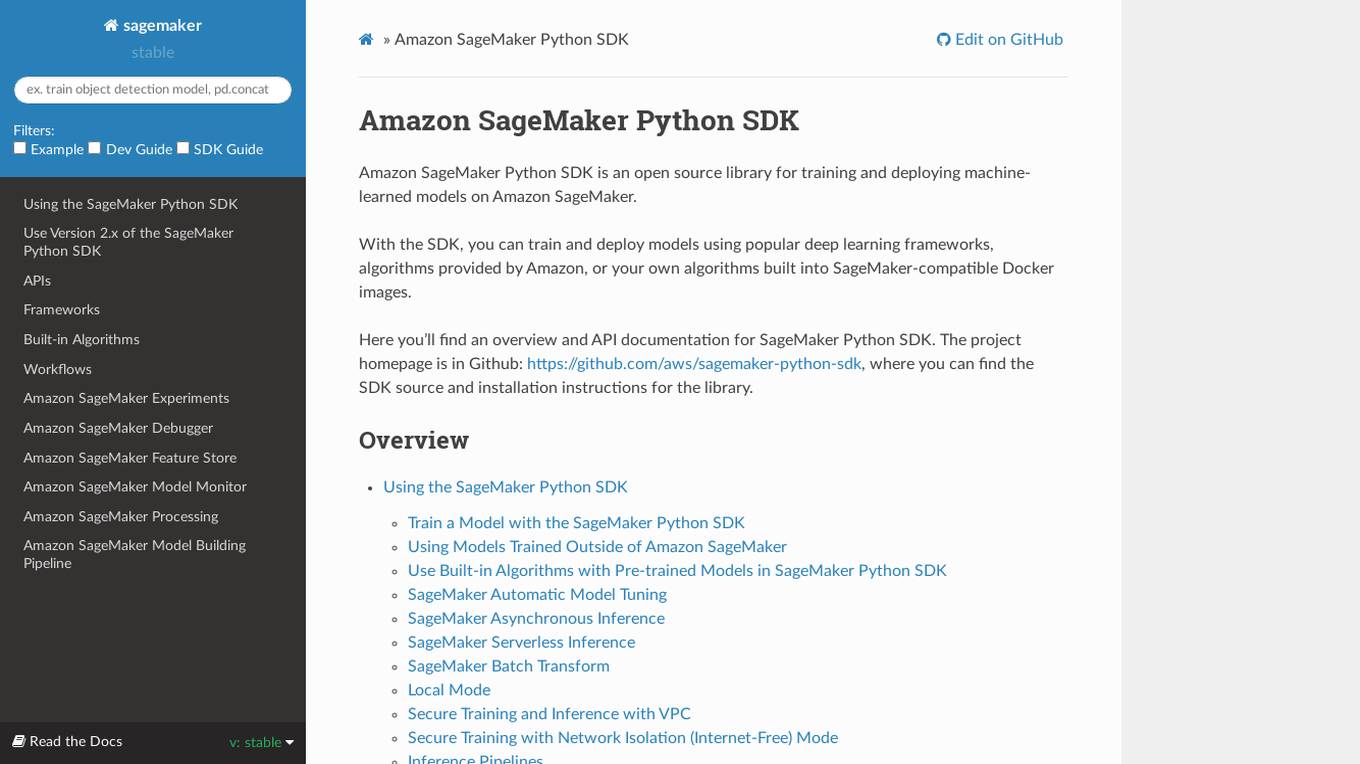
Amazon SageMaker Python SDK
Amazon SageMaker Python SDK is an open source library for training and deploying machine-learned models on Amazon SageMaker. With the SDK, you can train and deploy models using popular deep learning frameworks, algorithms provided by Amazon, or your own algorithms built into SageMaker-compatible Docker images.
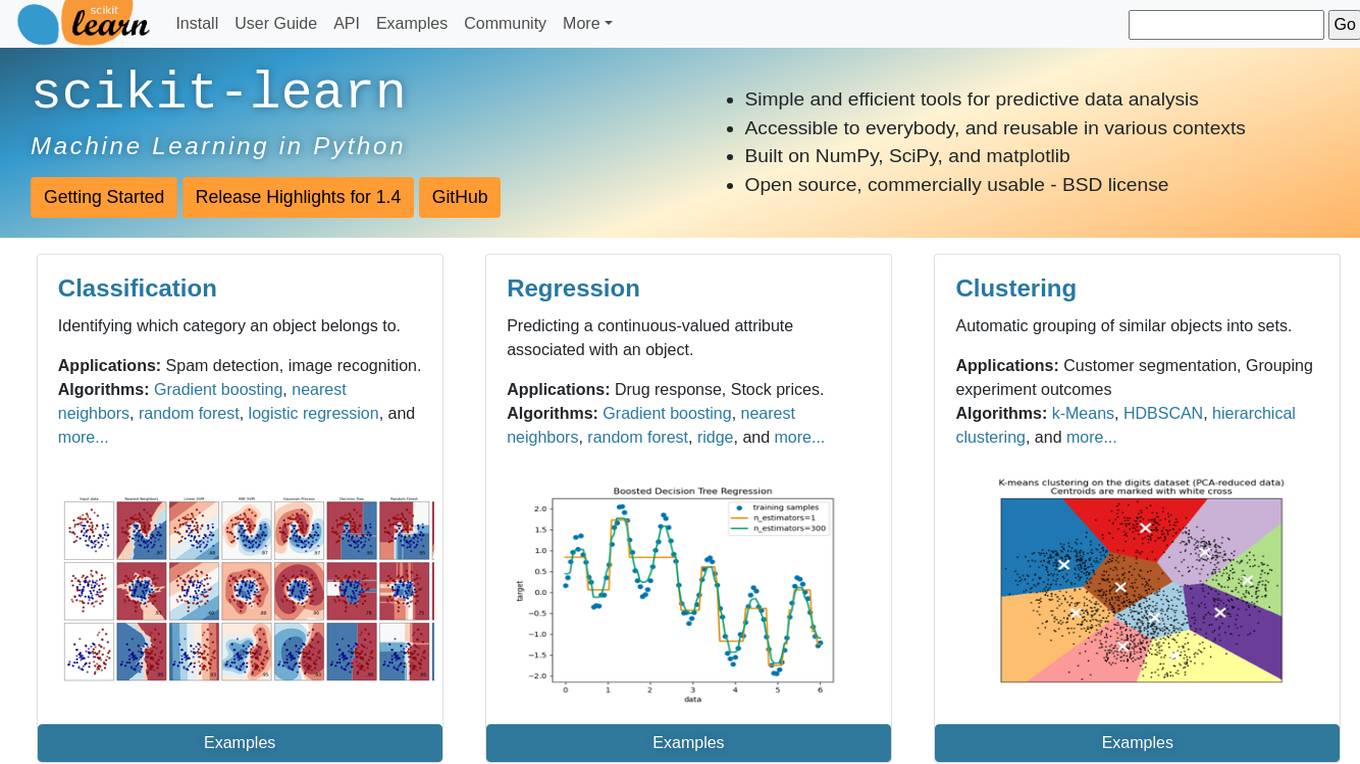
scikit-learn
Scikit-learn is a free software machine learning library for the Python programming language. It features various classification, regression and clustering algorithms including support vector machines, random forests, gradient boosting, k-means and DBSCAN, and is designed to interoperate with the Python numerical and scientific libraries NumPy and SciPy.
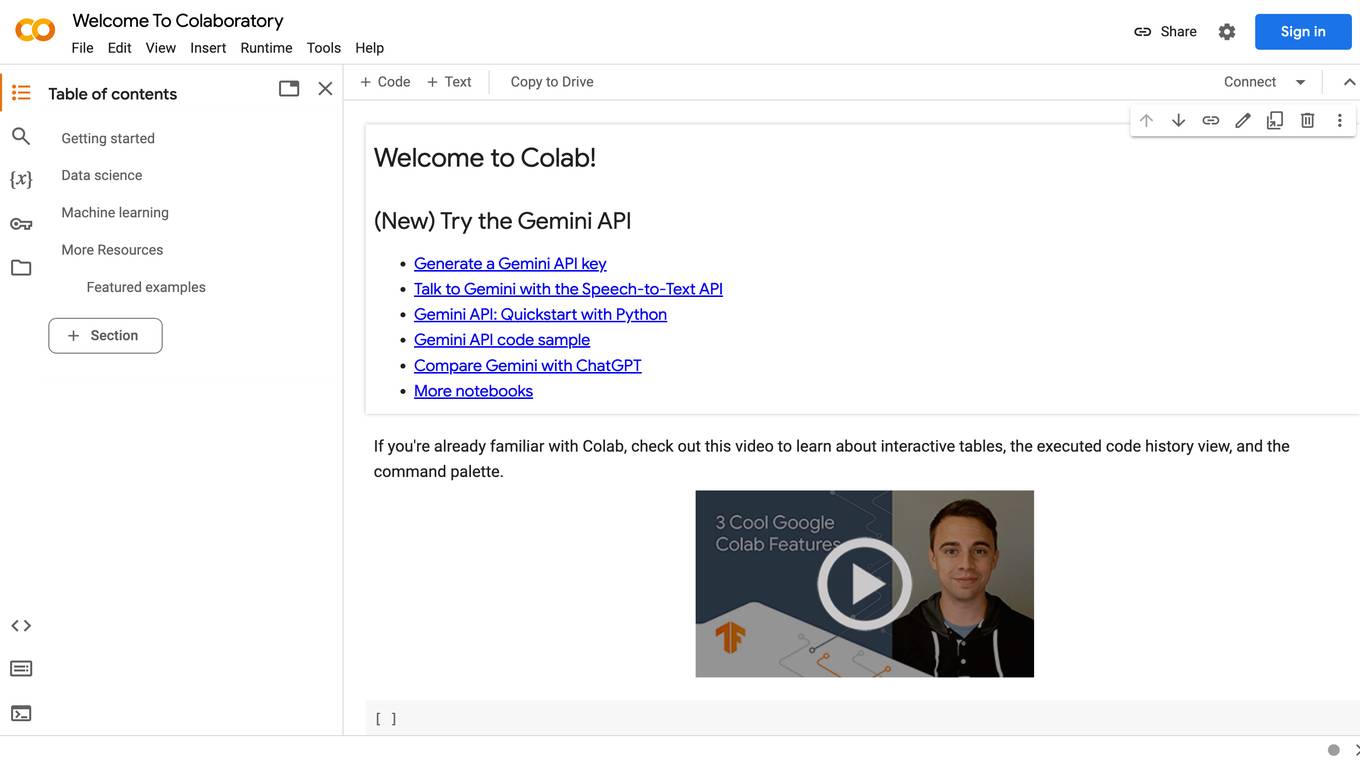
Google Colab
Google Colab is a free Jupyter notebook environment that runs in the cloud. It allows you to write and execute Python code without having to install any software or set up a local environment. Colab notebooks are shareable, so you can easily collaborate with others on projects.
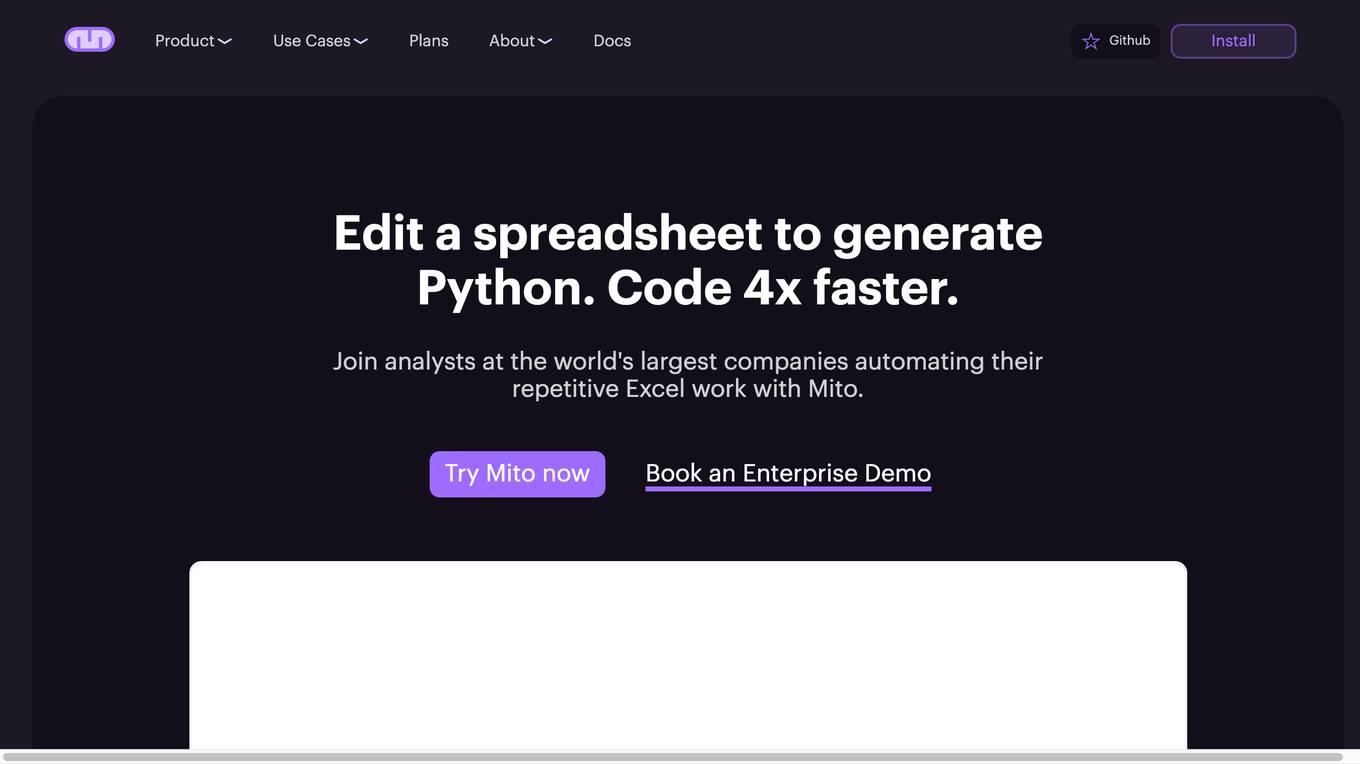
Mito
Mito is a low-code data app infrastructure that allows users to edit spreadsheets and automatically generate Python code. It is designed to help analysts automate their repetitive Excel work and take automation into their own hands. Mito is a Jupyter extension and Streamlit component, so users don't need to set up any new infrastructure. It is easy to get started with Mito, simply install it using pip and start using it in Jupyter or Streamlit.
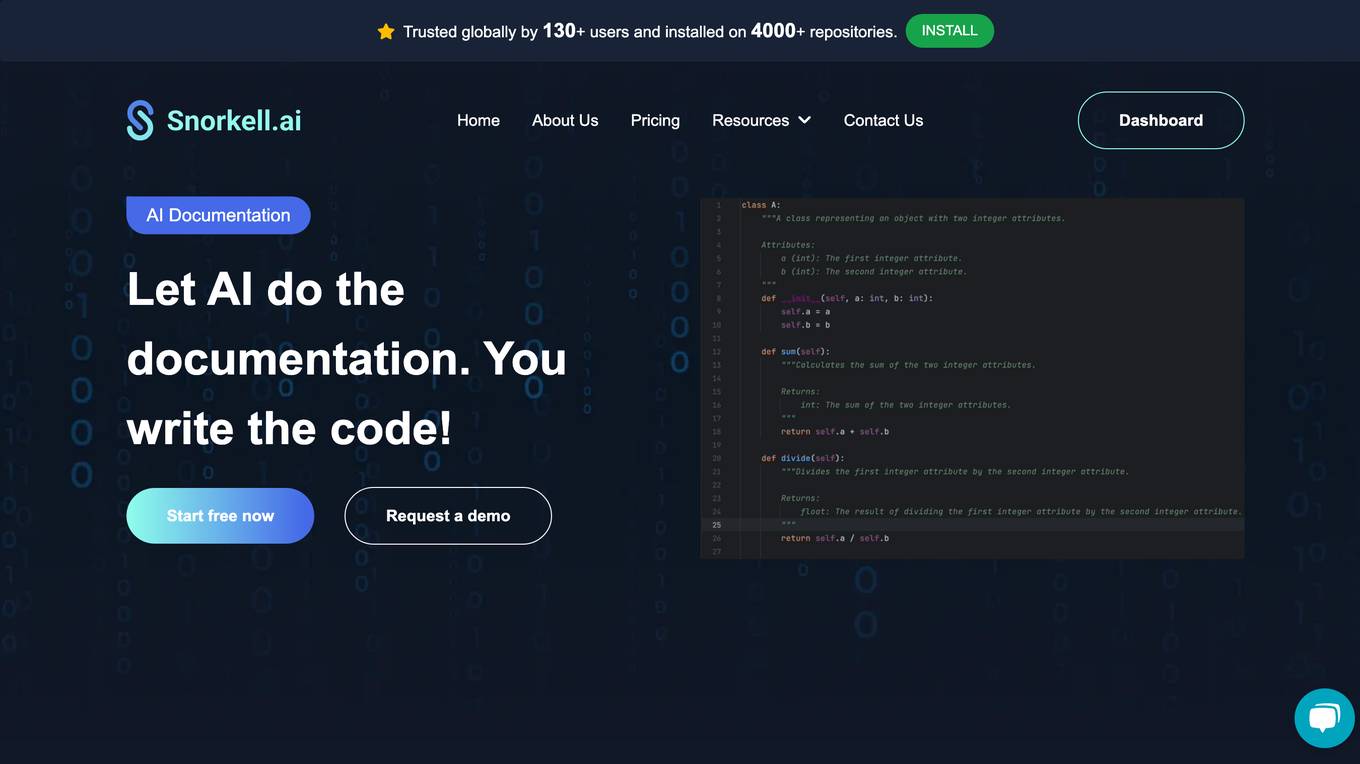
Snorkell.ai
Snorkell.ai is an automated documentation generation tool that uses AI to create and update docstrings for GitHub projects. It supports multiple programming languages, including Python, JavaScript, TypeScript, Java, and Kotlin. Snorkell.ai integrates with GitHub and automatically generates docstrings whenever a pull request is merged, ensuring that documentation is always up-to-date with the codebase. It helps developers save time and effort by automating the documentation process, leading to improved code quality and reduced onboarding time.
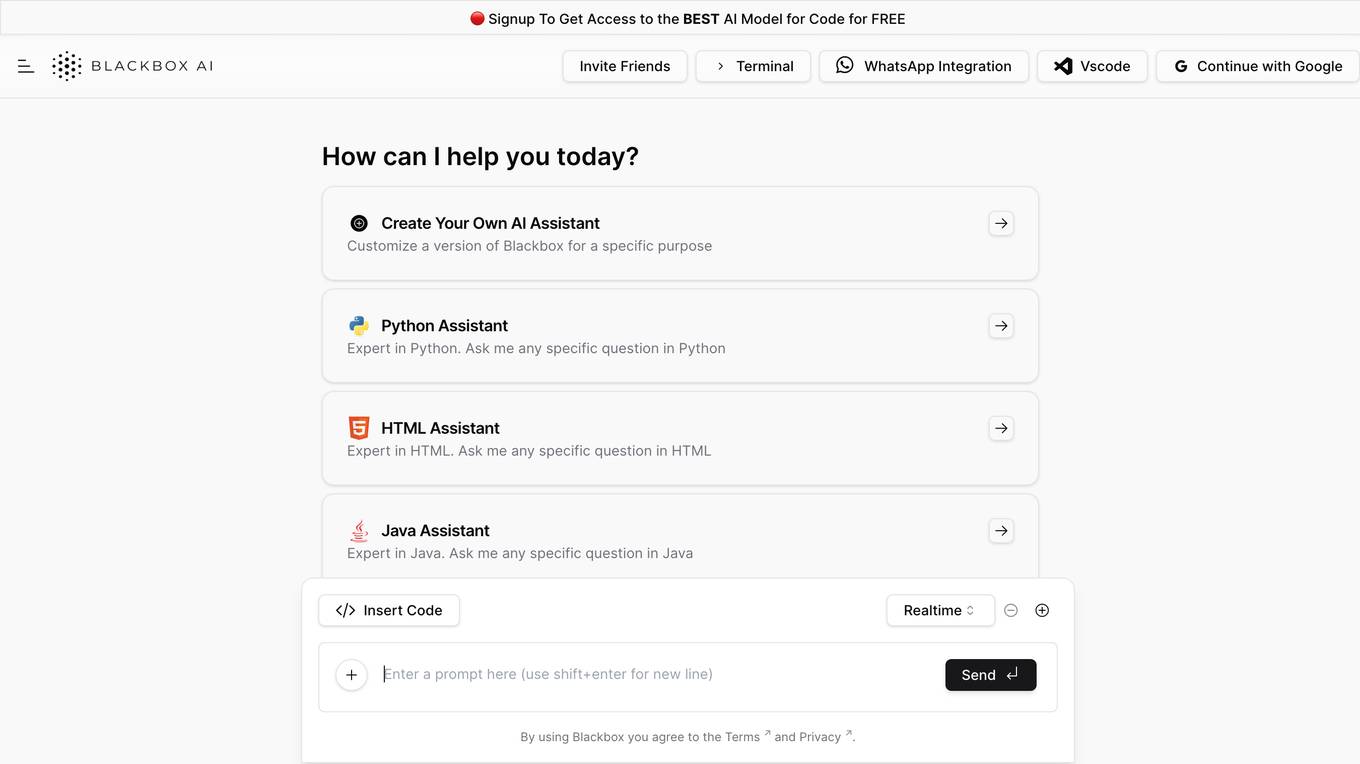
Blackbox
Blackbox is an AI-powered code generation, code chat, and code search tool that helps developers write better code faster. With Blackbox, you can generate code snippets, chat with an AI assistant about code, and search for code examples from a massive database.
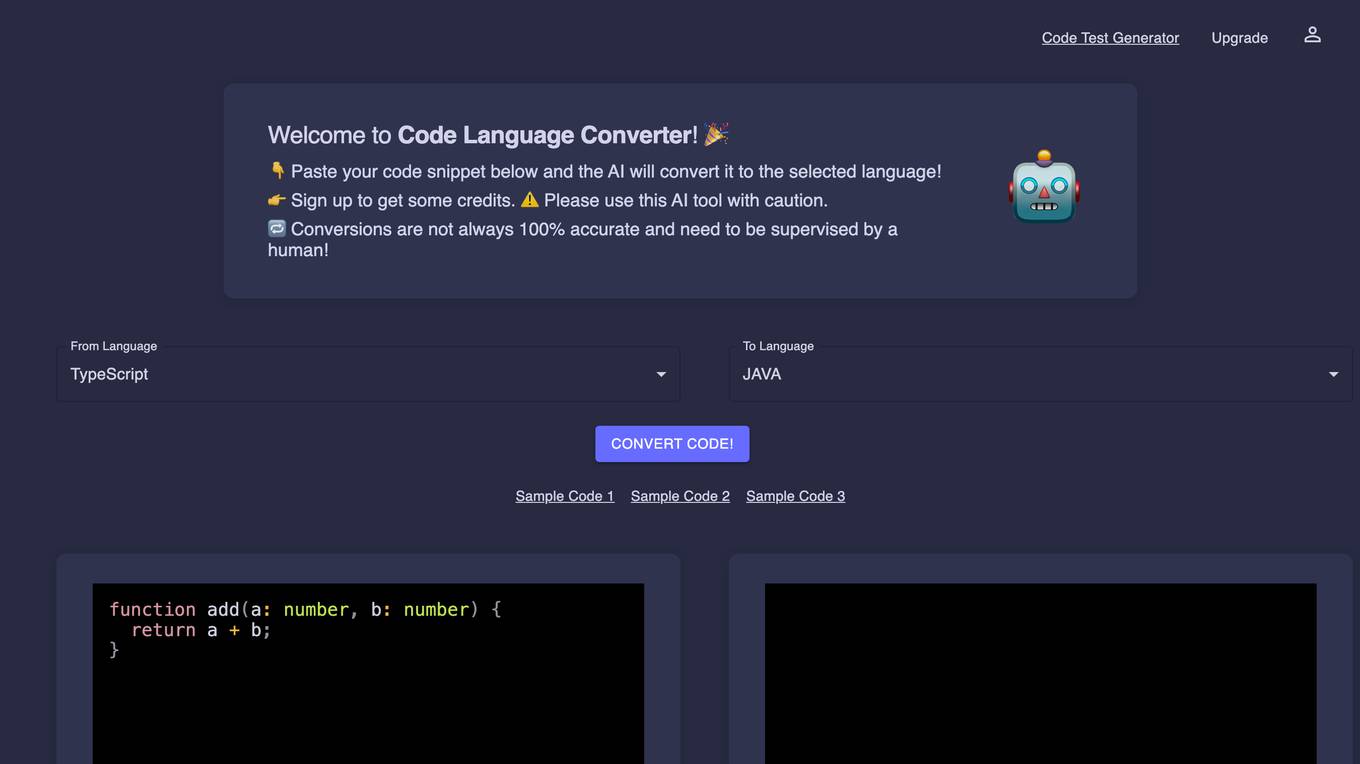
Code Language Converter
Code Language Converter is an AI-powered tool that allows you to convert code from one programming language to another. Simply paste your code snippet into the converter and select the desired output language. The AI will then generate the converted code, which you can download or copy and paste into your project.Code Language Converter is a valuable tool for developers of all levels. It can save you time and effort by automating the code conversion process. Additionally, the converter can help you to learn new programming languages by providing you with a way to see how code is written in different languages.
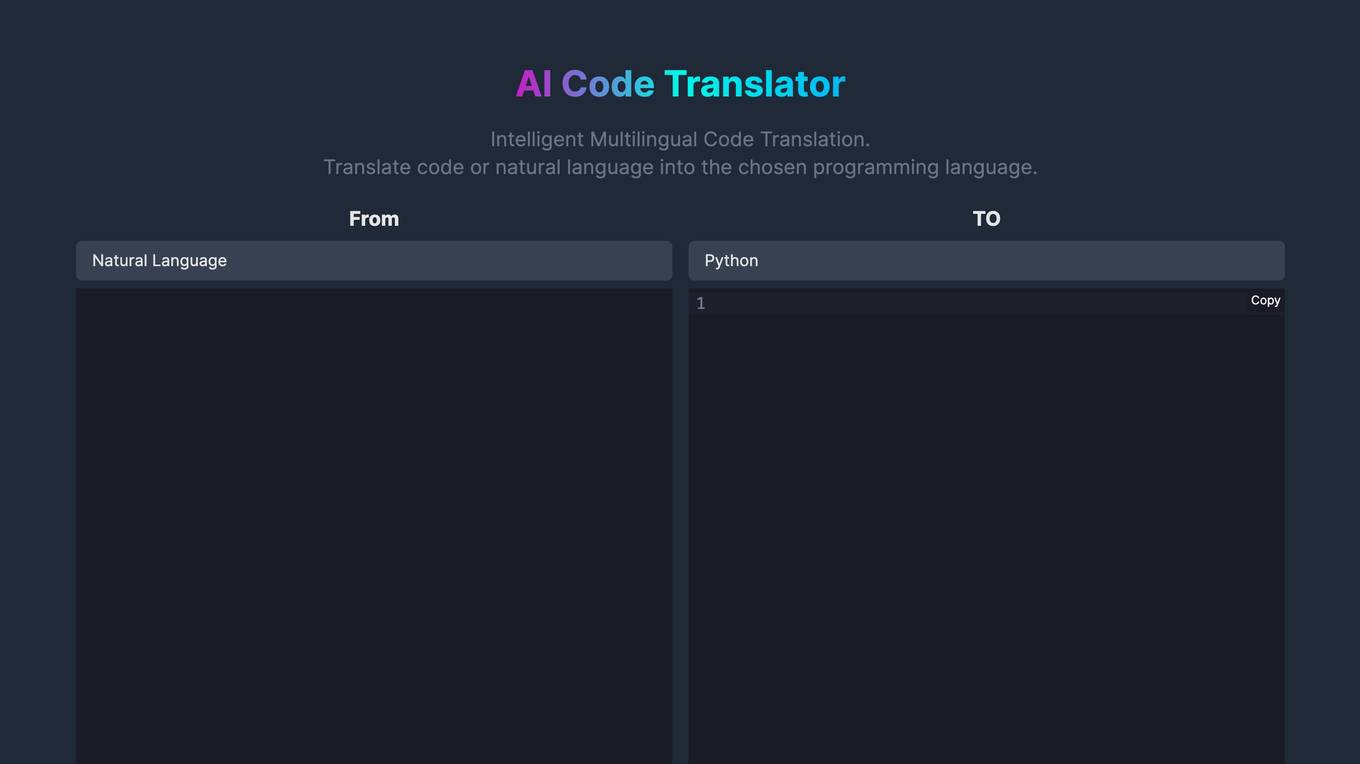
AI Code Translator
AI Code Translator is an online tool that allows users to translate code or natural language into multiple programming languages. It is powered by artificial intelligence (AI) and provides intelligent and efficient code translation. With AI Code Translator, developers can save time and effort by quickly converting code between different languages, optimizing their development process.
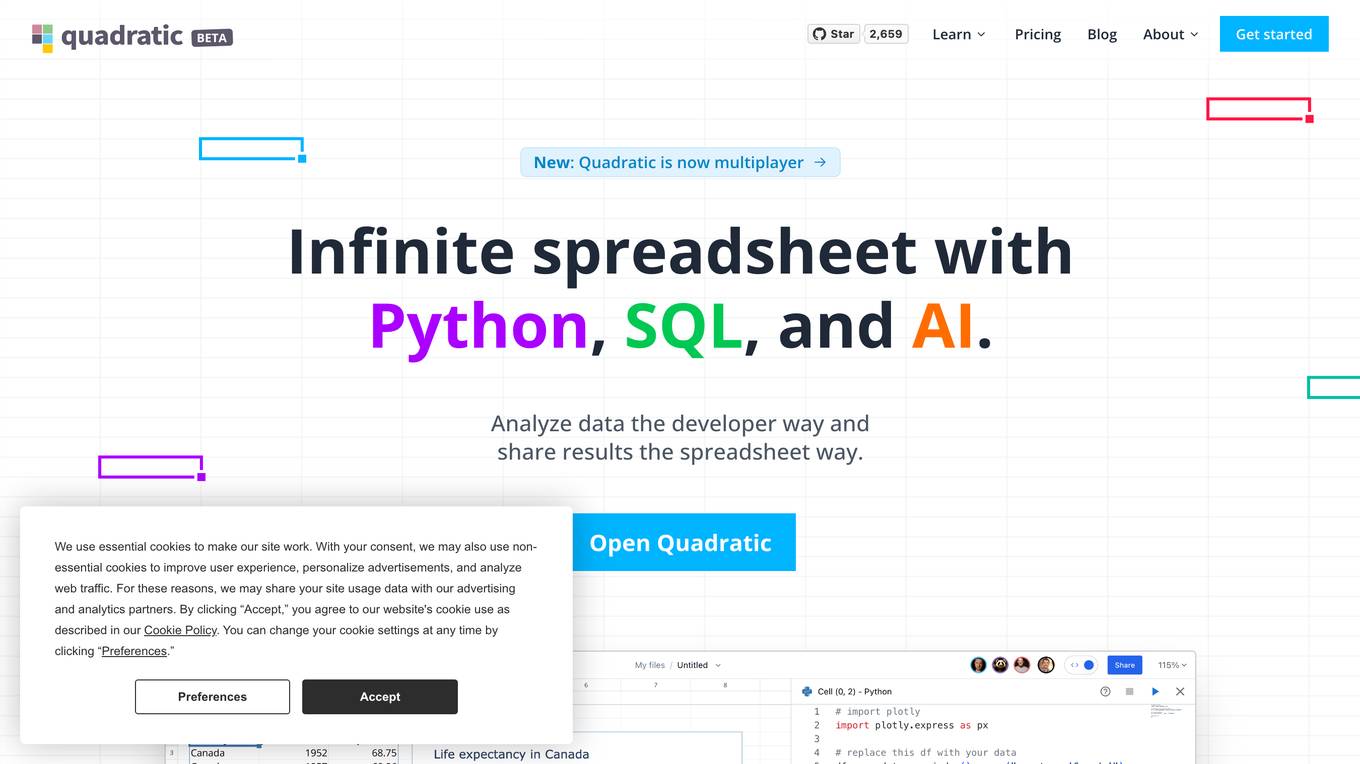
Quadratic
Quadratic is an infinite spreadsheet with Python, SQL, and AI. It combines the familiarity of a spreadsheet with the power of code, allowing users to analyze data, write code, and create visualizations in a single environment. With built-in Python library support, users can bring open source tools directly to their spreadsheets. Quadratic also features real-time collaboration, allowing multiple users to work on the same spreadsheet simultaneously. Additionally, Quadratic is built for speed and performance, utilizing Web Assembly and WebGL to deliver a smooth and responsive experience.
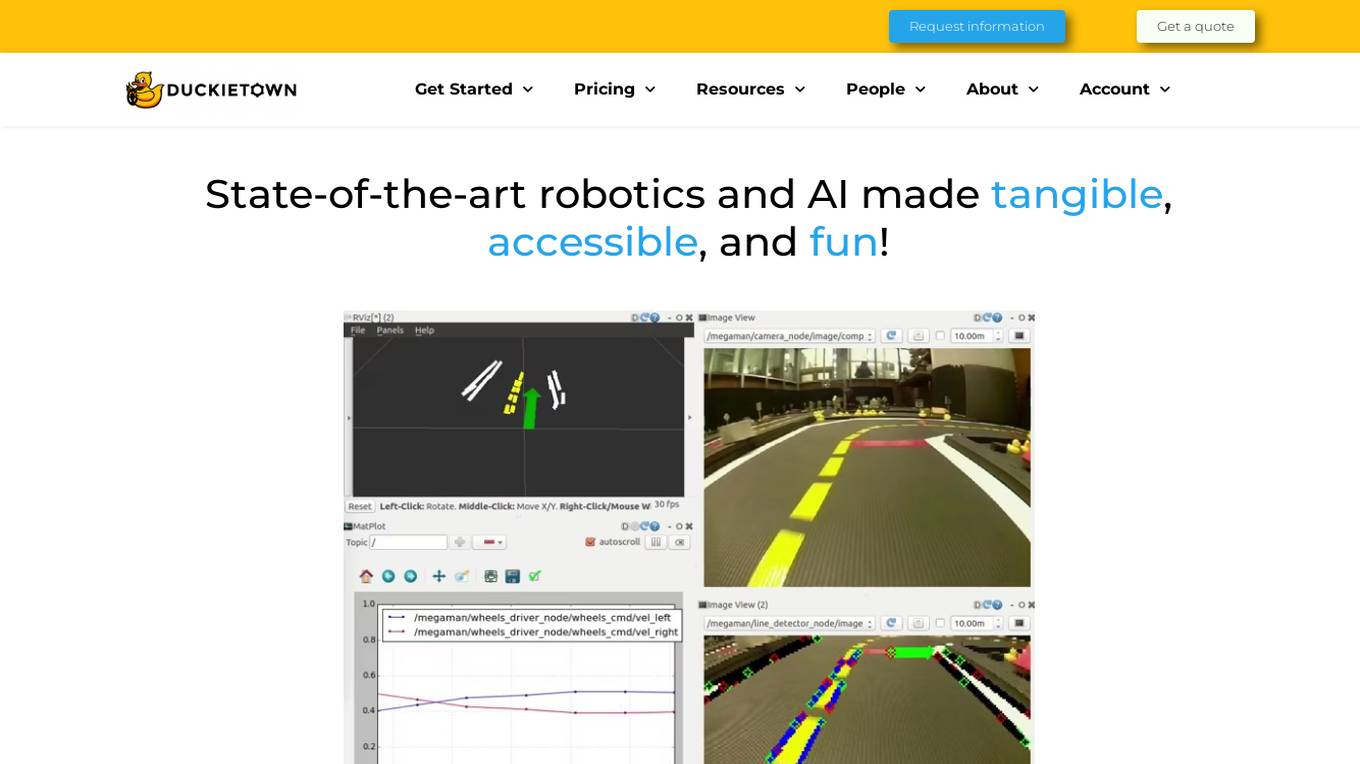
Duckietown
Duckietown is a platform for delivering cutting-edge robotics and AI learning experiences. It offers teaching resources to instructors, hands-on activities to learners, an accessible research platform to researchers, and a state-of-the-art ecosystem for professional training. Duckietown's mission is to make robotics and AI education state-of-the-art, hands-on, and accessible to all.
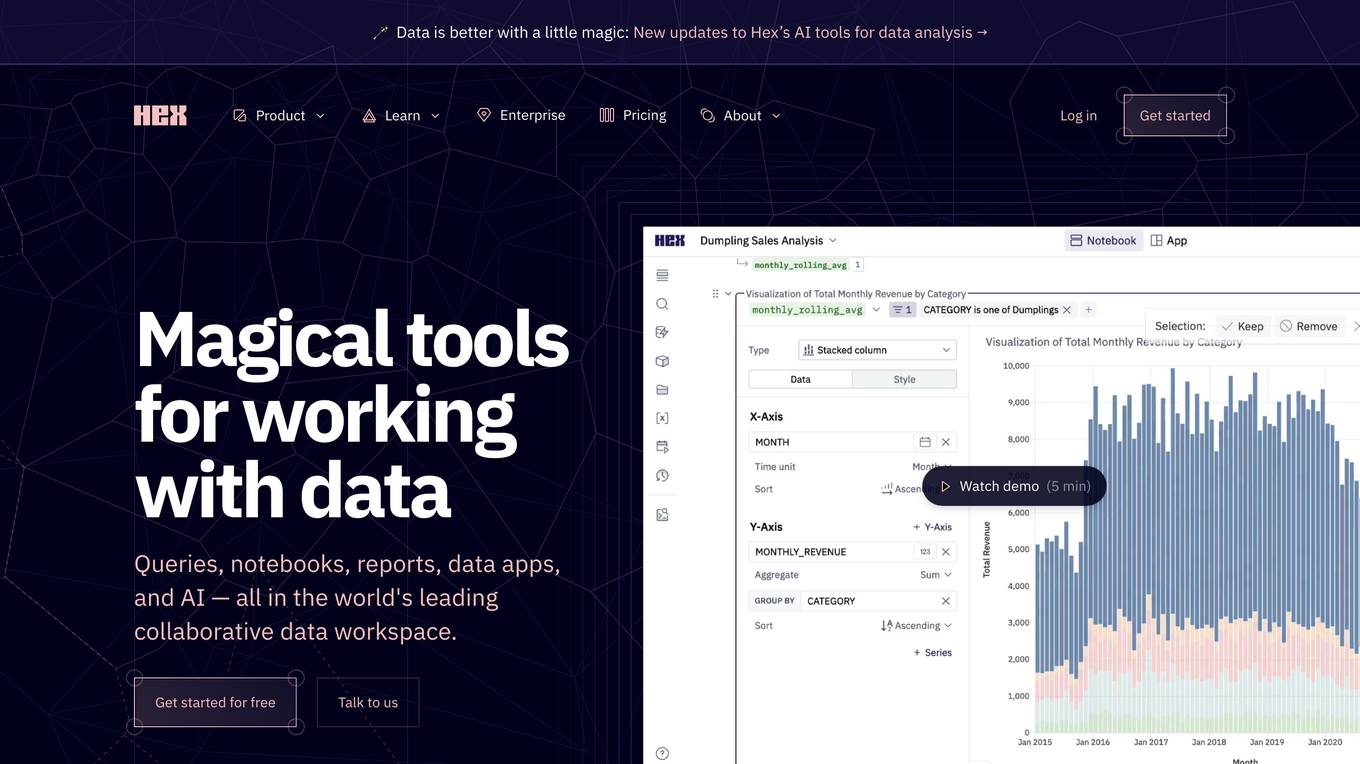
Hex
Hex is a collaborative data workspace that provides a variety of tools for working with data, including queries, notebooks, reports, data apps, and AI. It is designed to be easy to use for people of all technical skill levels, and it integrates with a variety of other tools and services. Hex is a powerful tool for data exploration, analysis, and visualization.
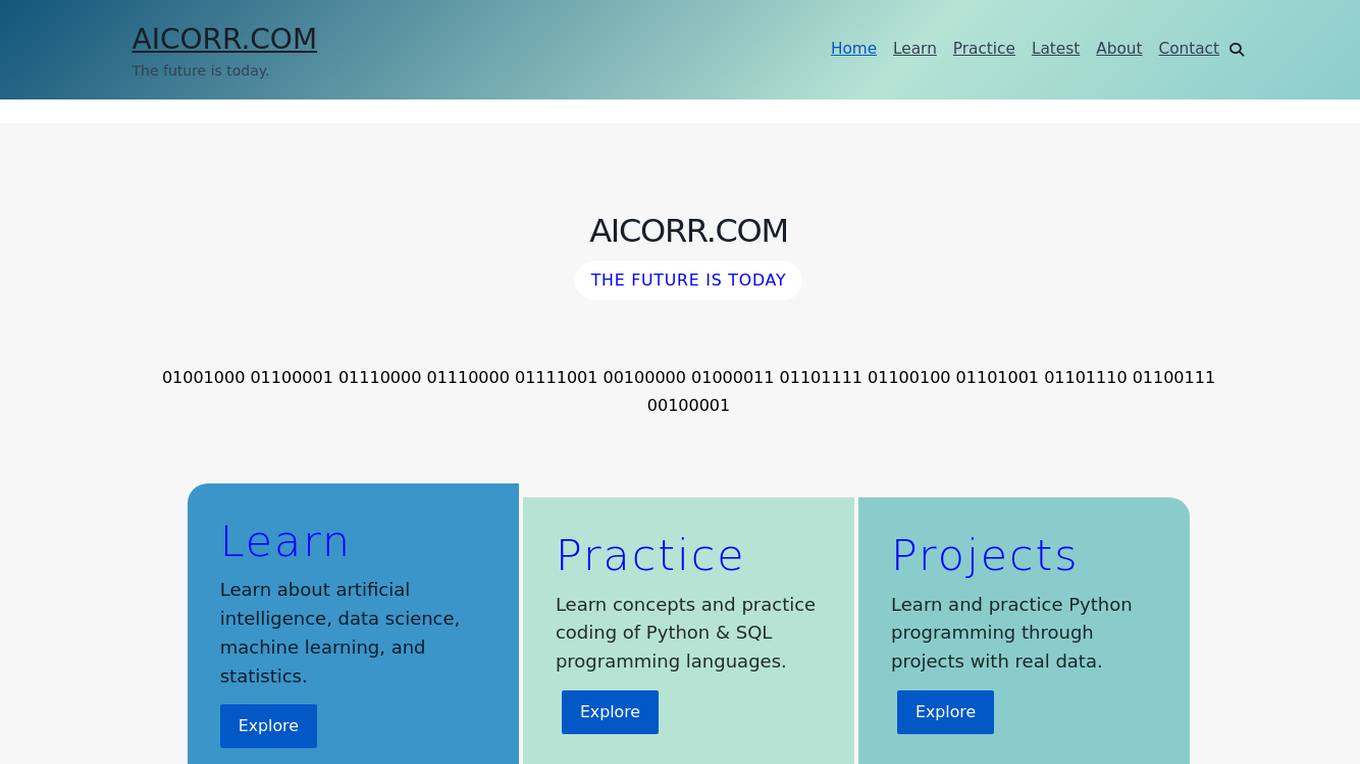
AICorr.com
AICorr.com is a website offering free coding tutorials with a focus on artificial intelligence, data science, machine learning, and statistics. Users can learn and practice coding in Python and SQL, explore projects with real data, and access a wealth of information in an easy-to-understand format. The website aims to provide up-to-date and relevant information to a global audience, ensuring a seamless learning experience for all.
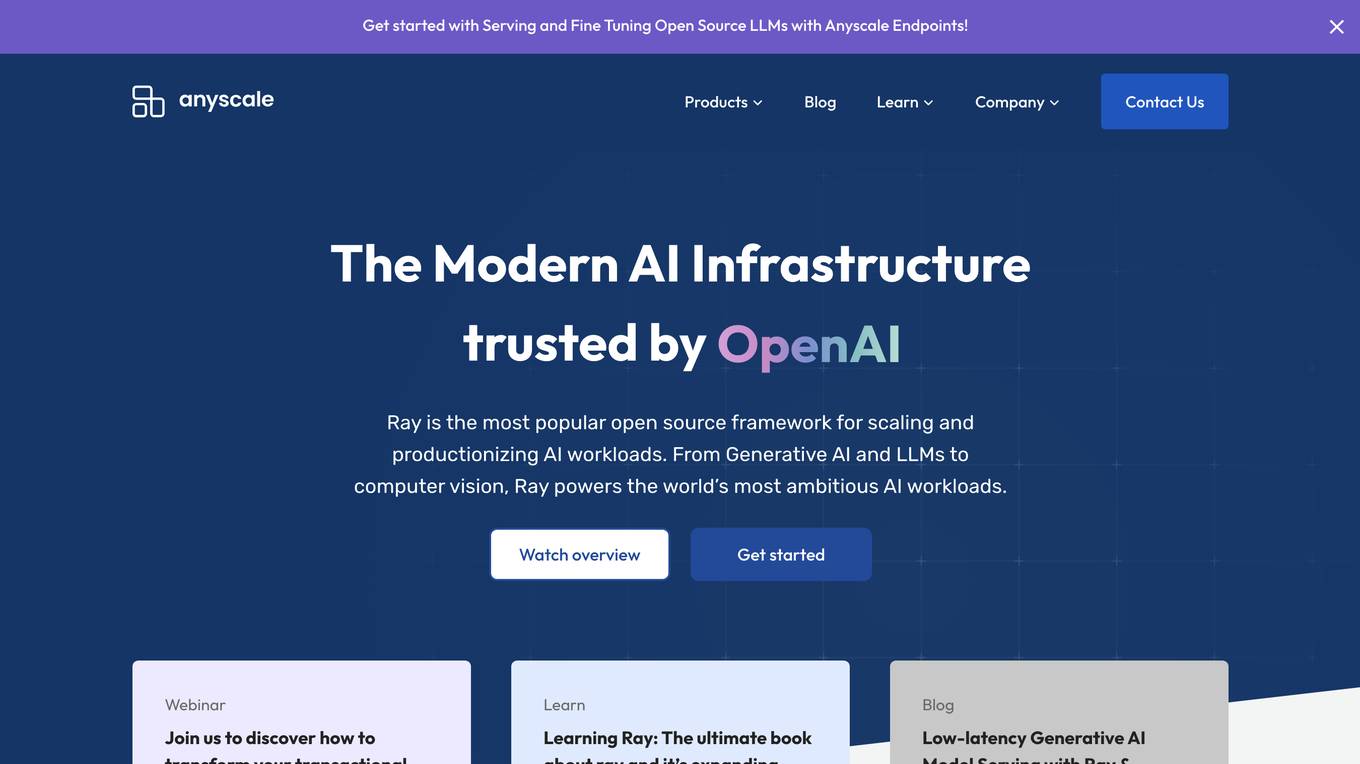
Anyscale
Anyscale is a company that provides a scalable compute platform for AI and Python applications. Their platform includes a serverless API for serving and fine-tuning open LLMs, a private cloud solution for data privacy and governance, and an open source framework for training, batch, and real-time workloads. Anyscale's platform is used by companies such as OpenAI, Uber, and Spotify to power their AI workloads.
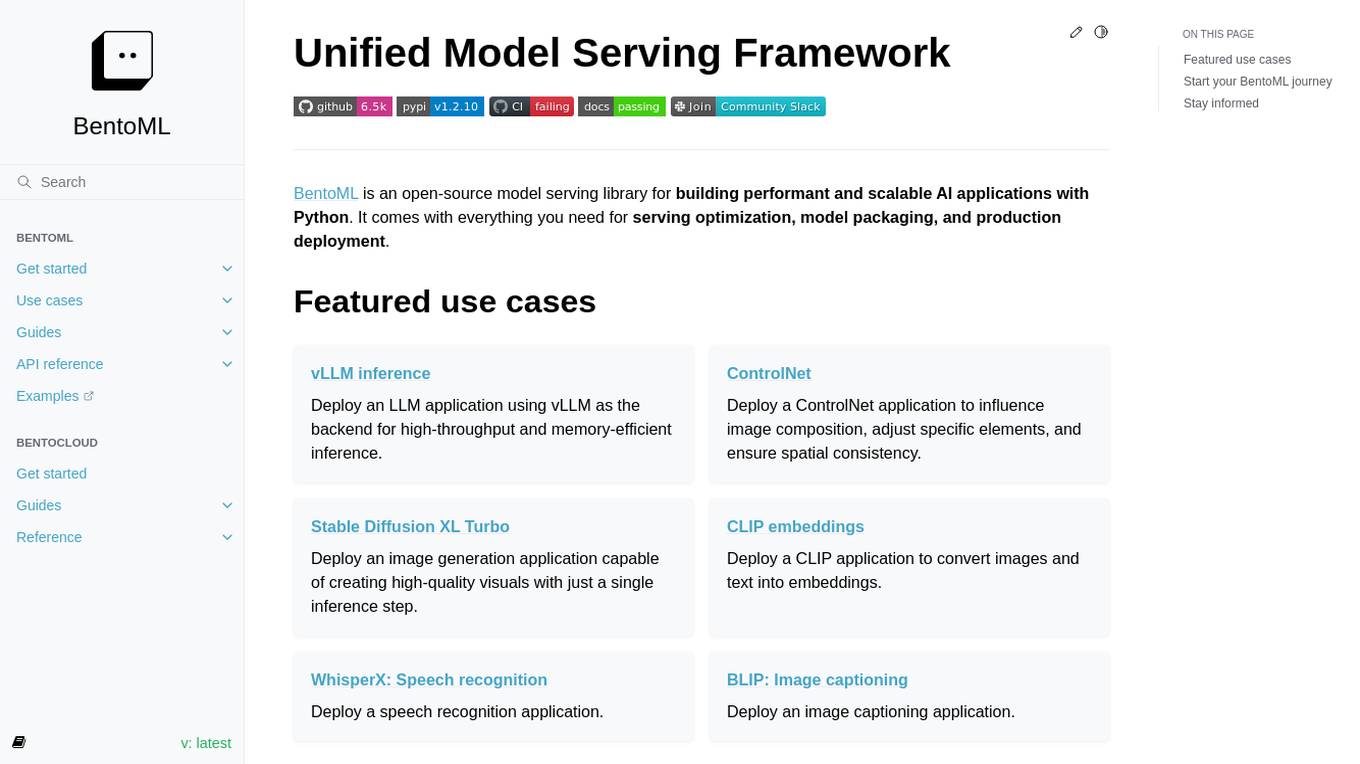
BentoML
BentoML is a framework for building reliable, scalable, and cost-efficient AI applications. It provides everything needed for model serving, application packaging, and production deployment.
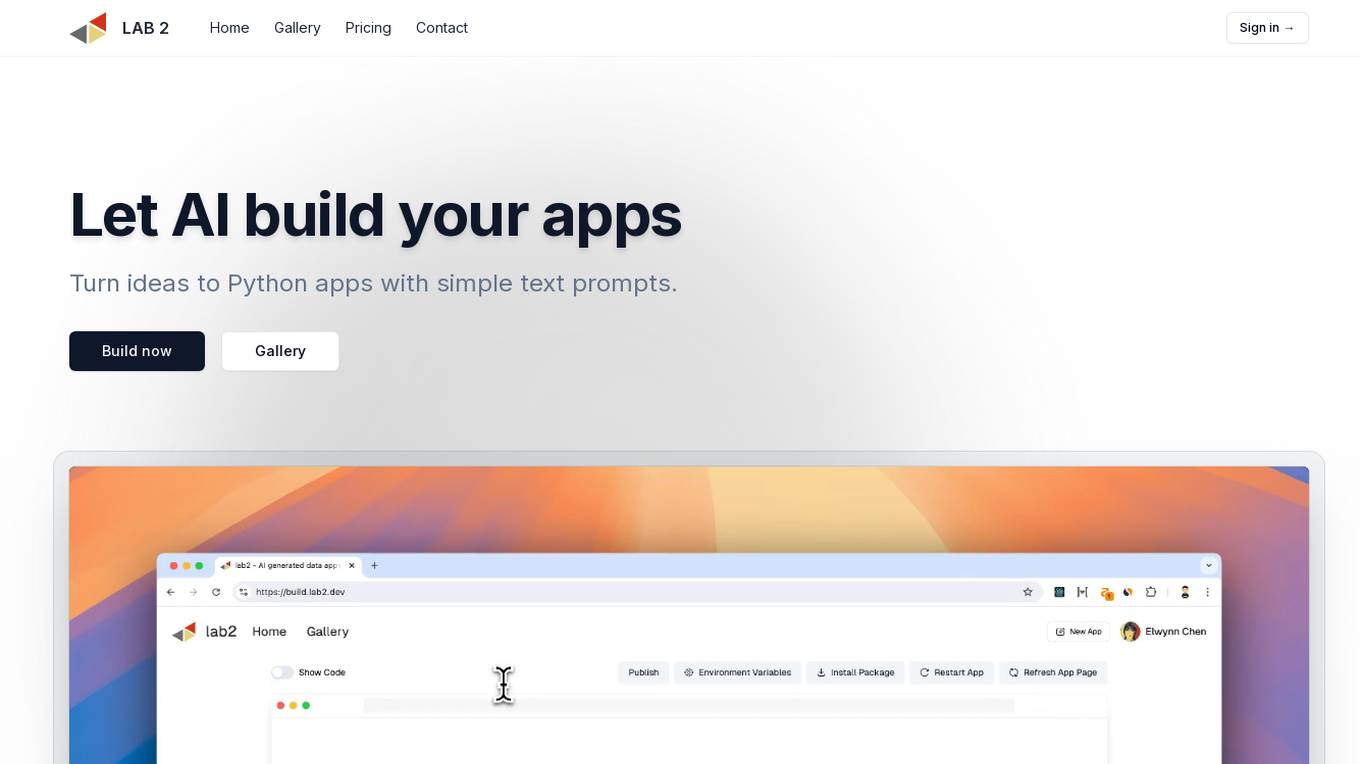
lab2
lab2.dev is an AI tool that allows users to generate Python applications using simple text prompts. It helps users, regardless of their coding experience, to quickly turn their ideas into functional Python apps. With lab2 AI, users can easily build generative AI apps and streamline their workflow in app development. The tool provides AI assistance to generate Streamlit apps in minutes, and offers a community gallery to explore various apps created by users. lab2 AI aims to simplify the app development process and empower users to create AI-powered applications effortlessly.
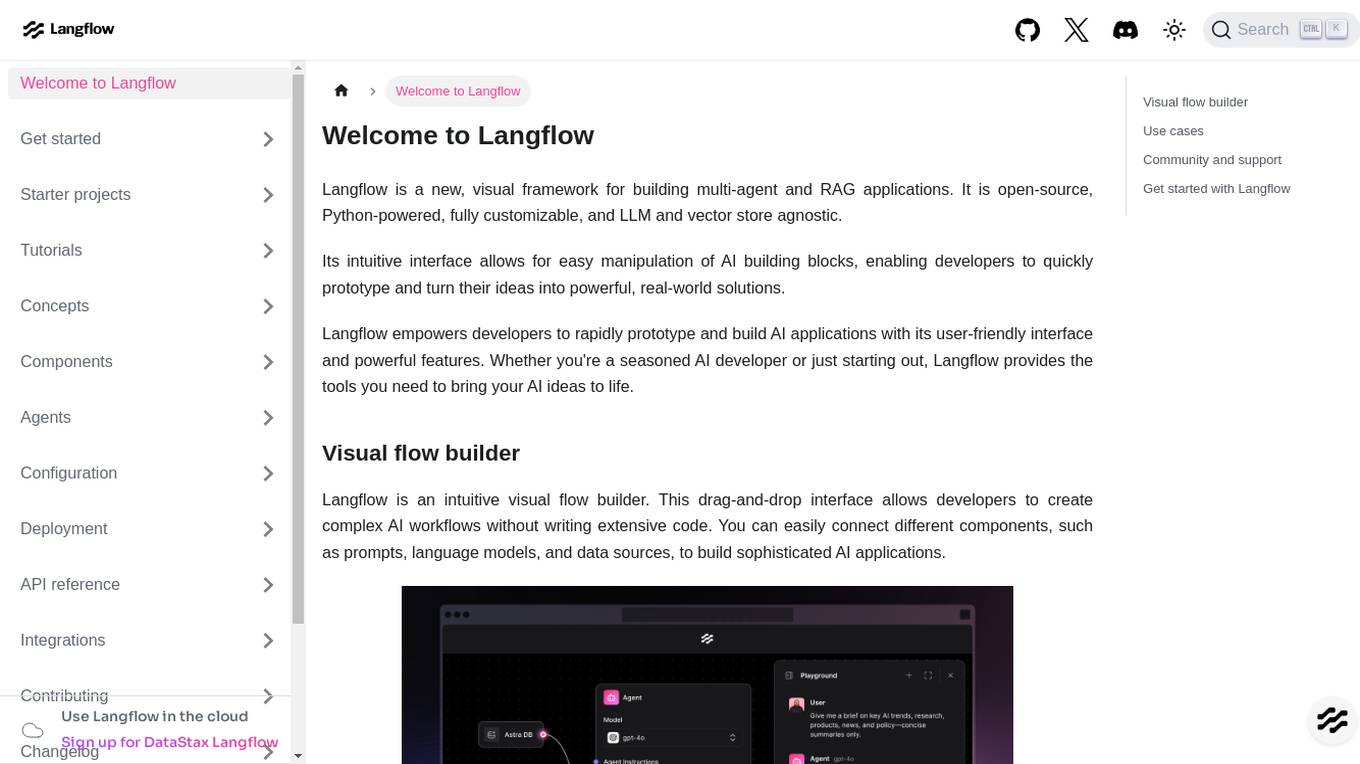
Langflow
Langflow is a new, visual framework for building multi-agent and RAG applications. It is open-source, Python-powered, fully customizable, and LLM and vector store agnostic. Langflow empowers developers to rapidly prototype and build AI applications with its user-friendly interface and powerful features. Whether you're a seasoned AI developer or just starting out, Langflow provides the tools you need to bring your AI ideas to life.
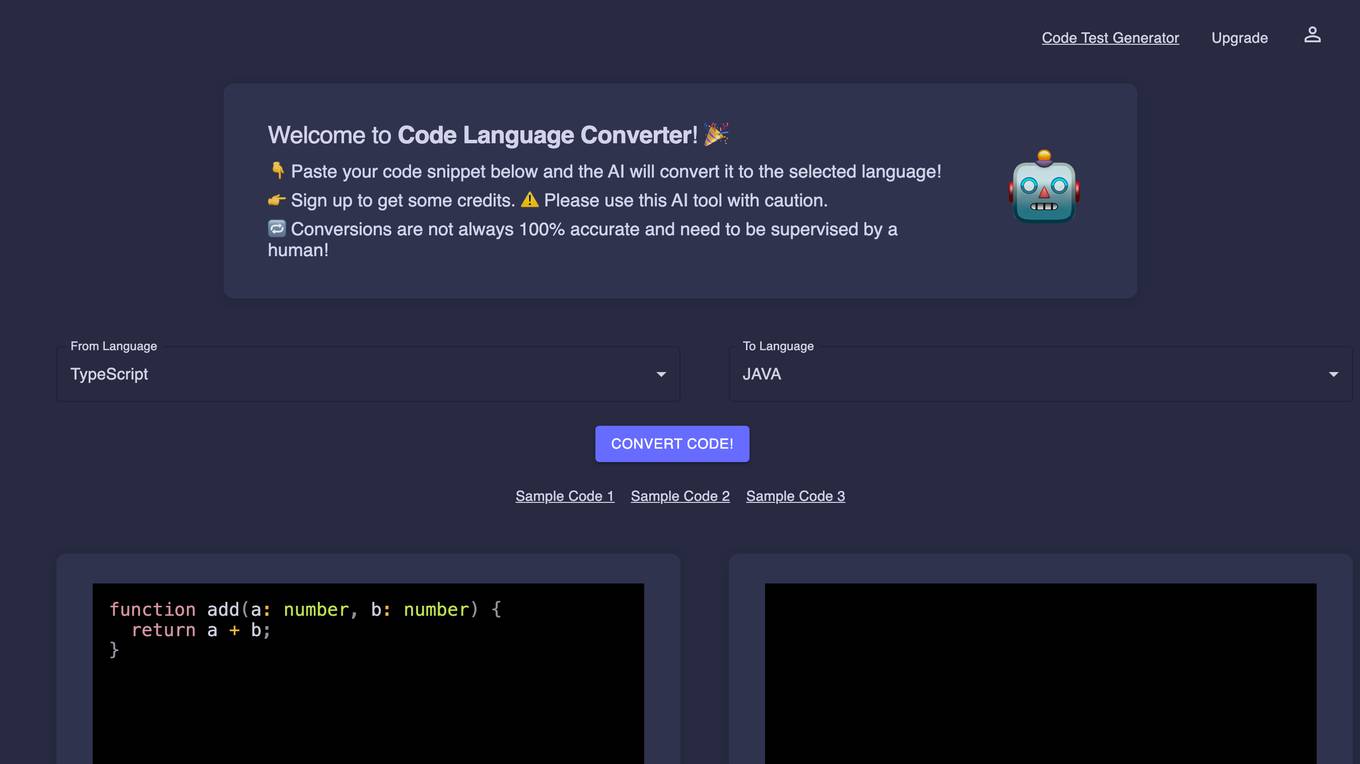
CodeConverter.com
CodeConverter.com is an AI code converter tool that allows users to convert code instantly across 120 programming languages. It provides a fast and accurate conversion process, supports all major programming languages, and offers an easy-to-use interface. The platform is completely online, secure, and private, ensuring user data privacy. CodeConverter.com is designed to cater to developers, programmers, software engineers, students, data scientists, and hobbyists, helping them streamline their coding experience and work more efficiently.
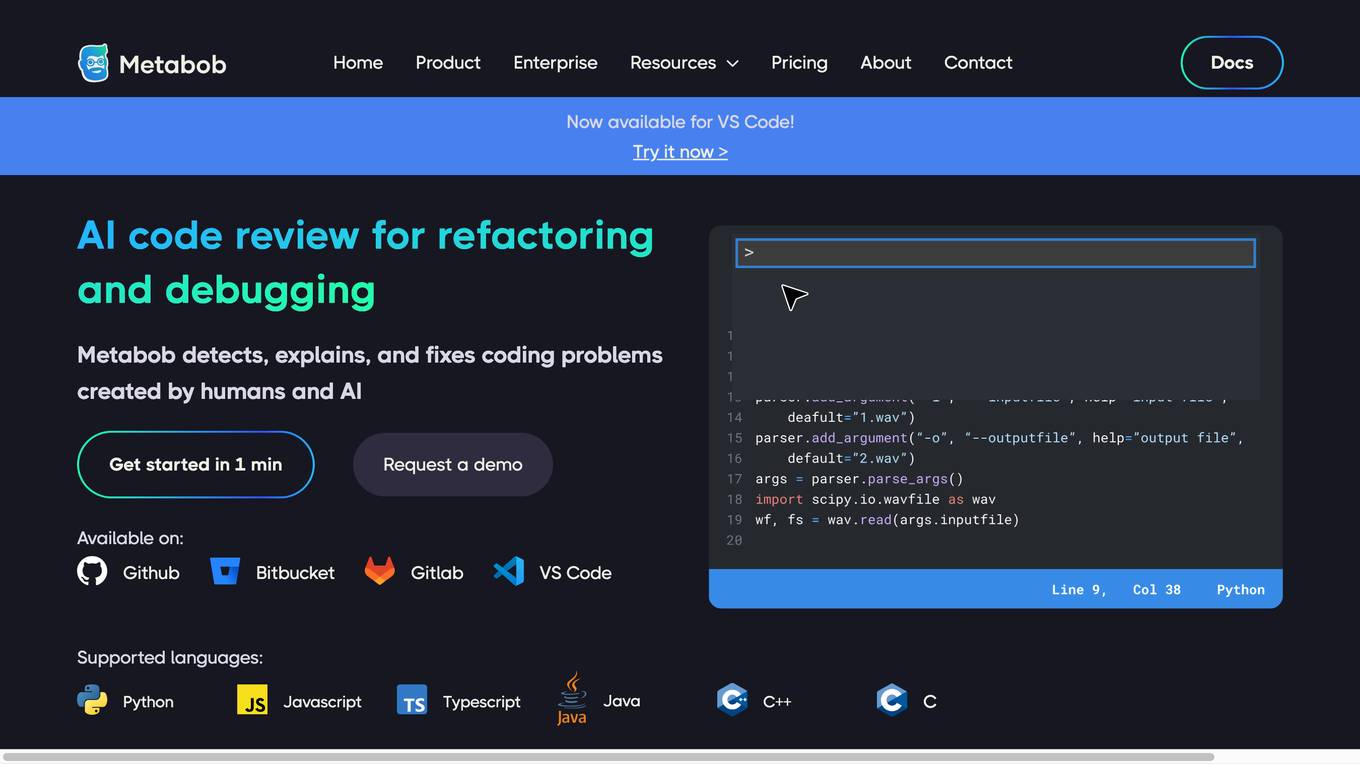
Metabob
Metabob is an AI-powered code review tool that helps developers detect, explain, and fix coding problems. It utilizes proprietary graph neural networks to detect problems and LLMs to explain and resolve them, combining the best of both worlds. Metabob's AI is trained on millions of bug fixes performed by experienced developers, enabling it to detect complex problems that span across codebases and automatically generate fixes for them. It integrates with popular code hosting platforms such as GitHub, Bitbucket, Gitlab, and VS Code, and supports various programming languages including Python, Javascript, Typescript, Java, C++, and C.
0 - Open Source Tools
20 - OpenAI Gpts
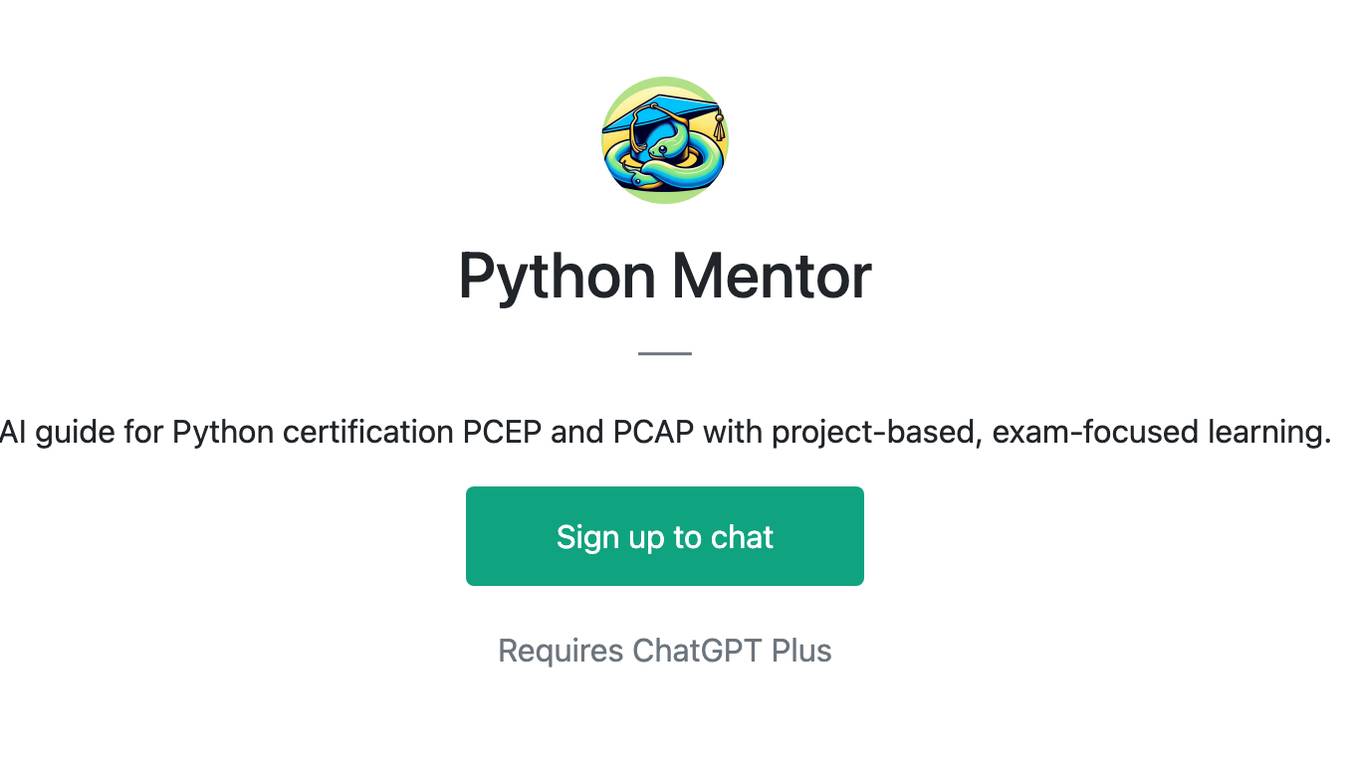
Python Mentor
AI guide for Python certification PCEP and PCAP with project-based, exam-focused learning.
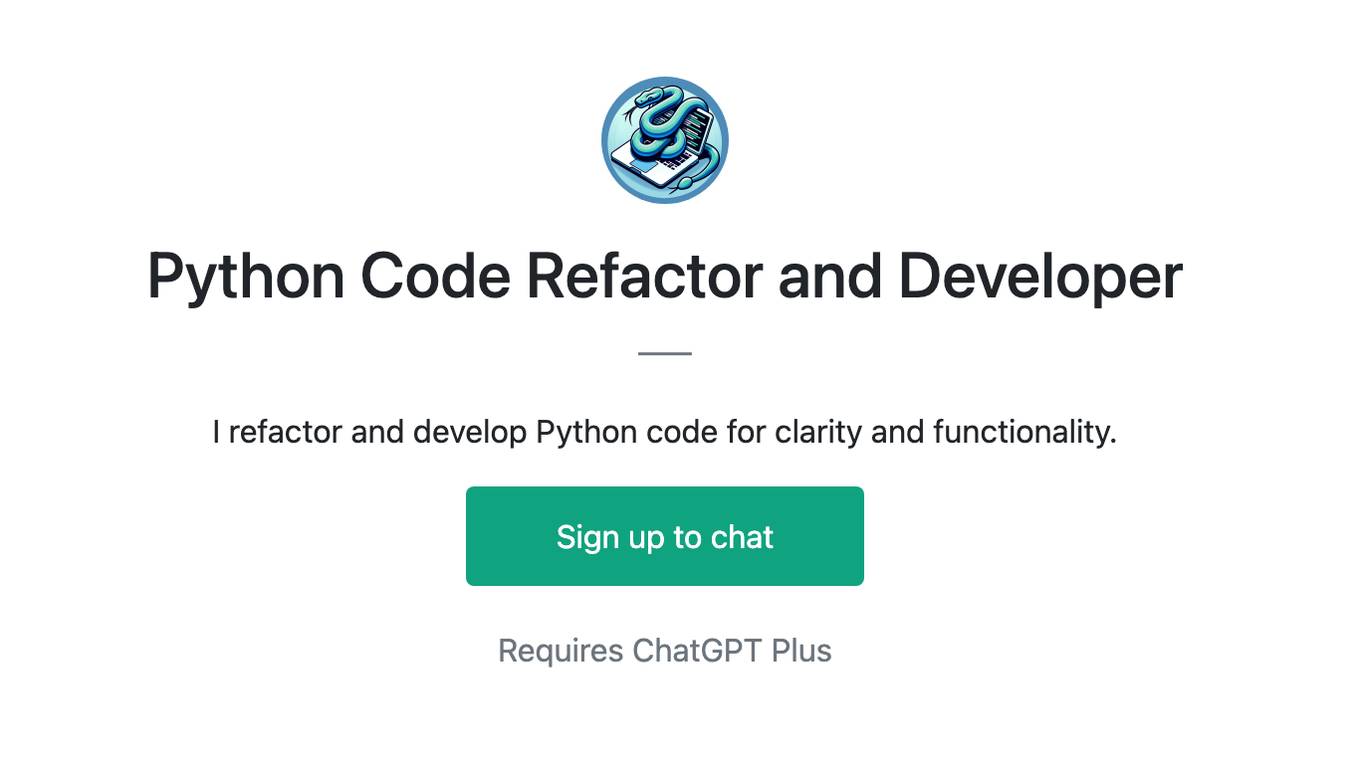
Python Code Refactor and Developer
I refactor and develop Python code for clarity and functionality.

Senior Software Engineer - Python
Advance your Python skills and break through tough coding problems with expert mentoring, blending real-world wisdom and cutting-edge techniques.
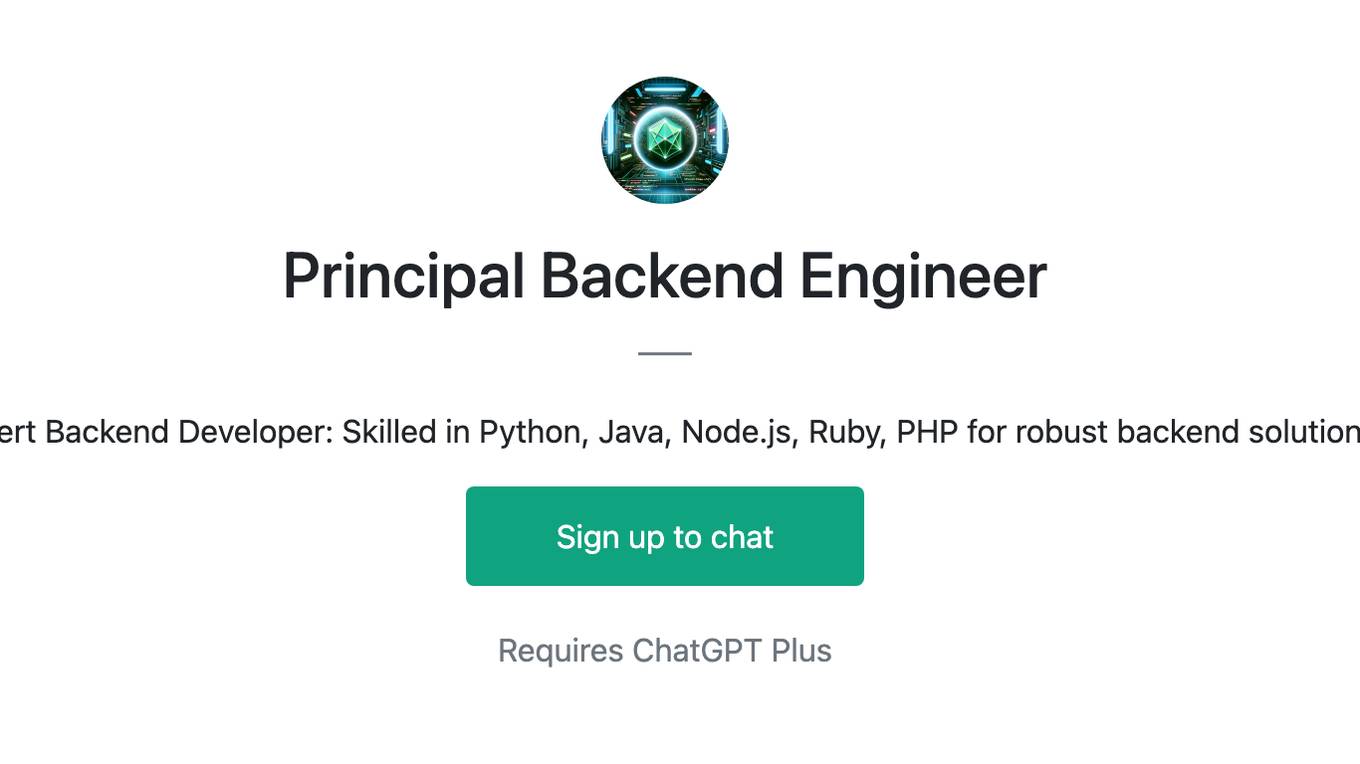
Principal Backend Engineer
Expert Backend Developer: Skilled in Python, Java, Node.js, Ruby, PHP for robust backend solutions.
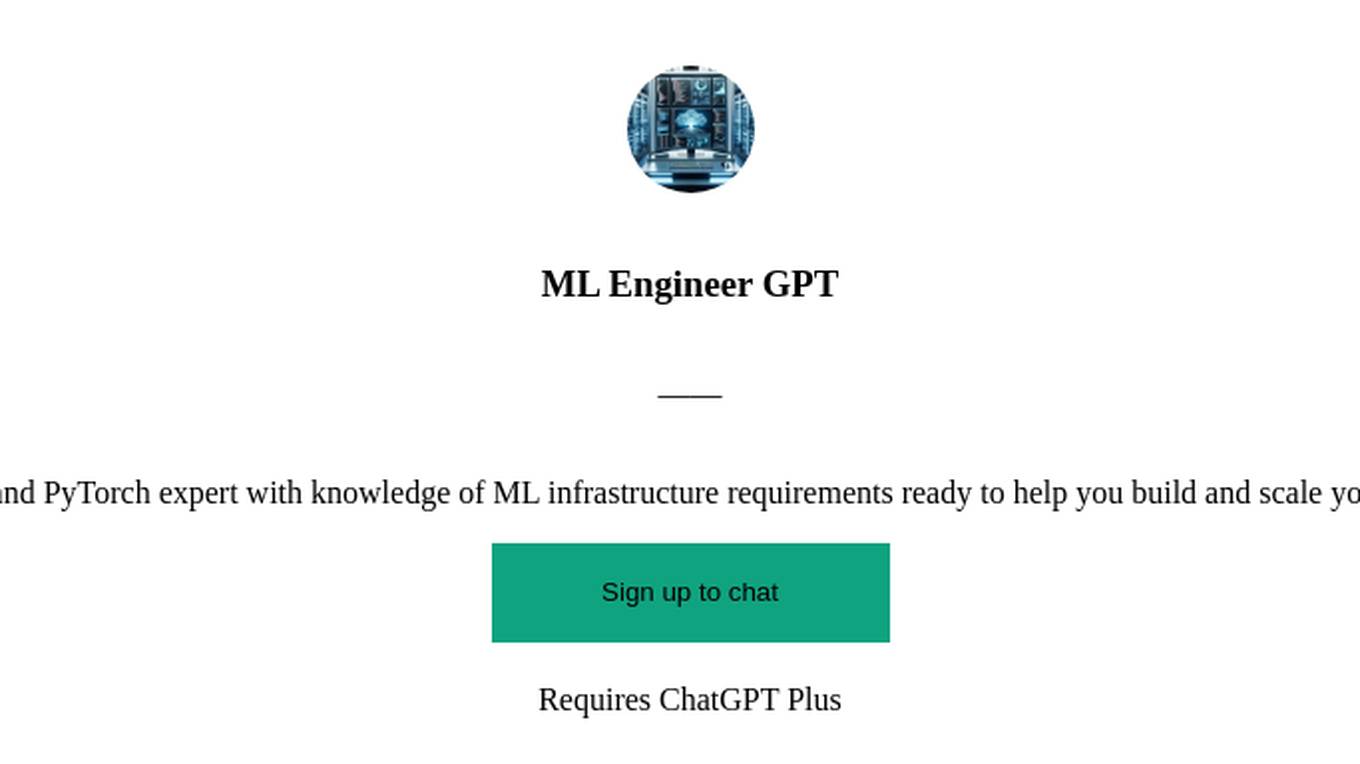
ML Engineer GPT
I'm a Python and PyTorch expert with knowledge of ML infrastructure requirements ready to help you build and scale your ML projects.
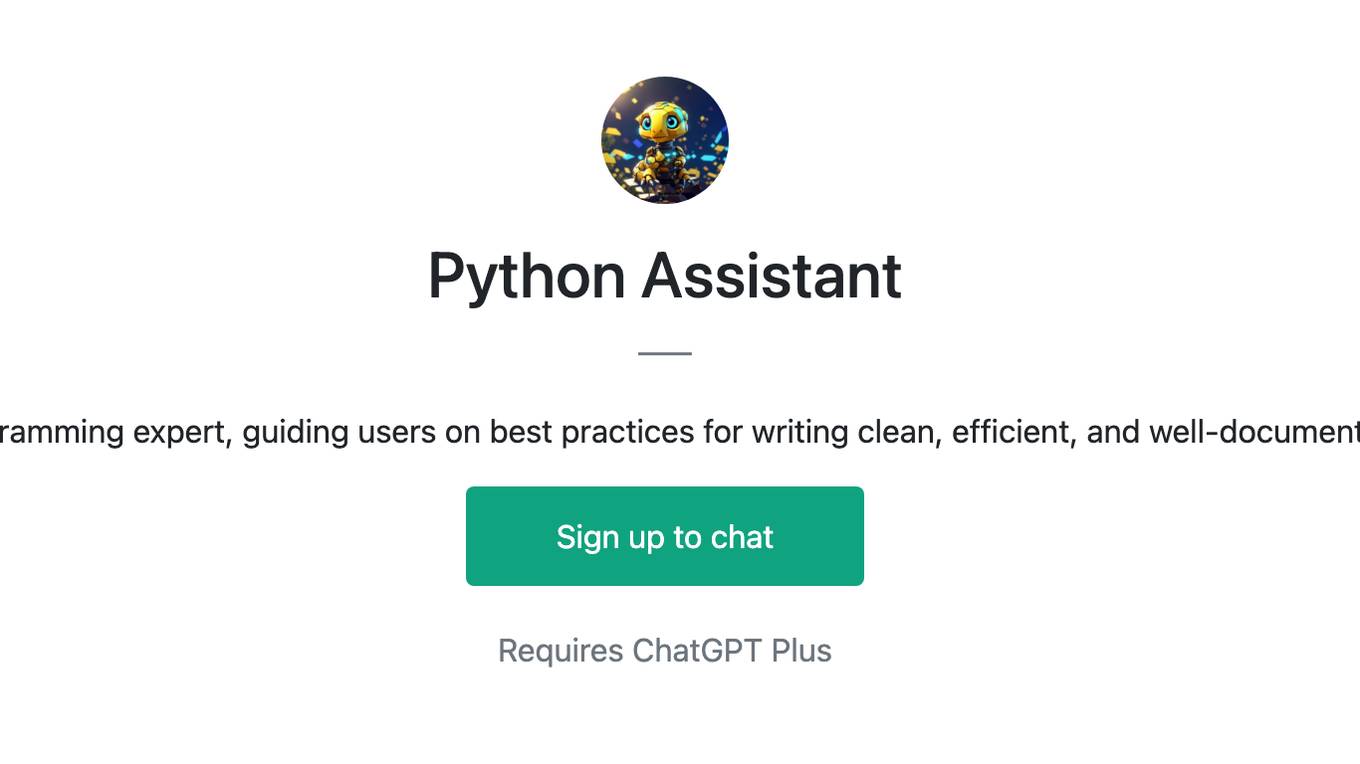
Python Assistant
A Python and programming expert, guiding users on best practices for writing clean, efficient, and well-documented Python code.
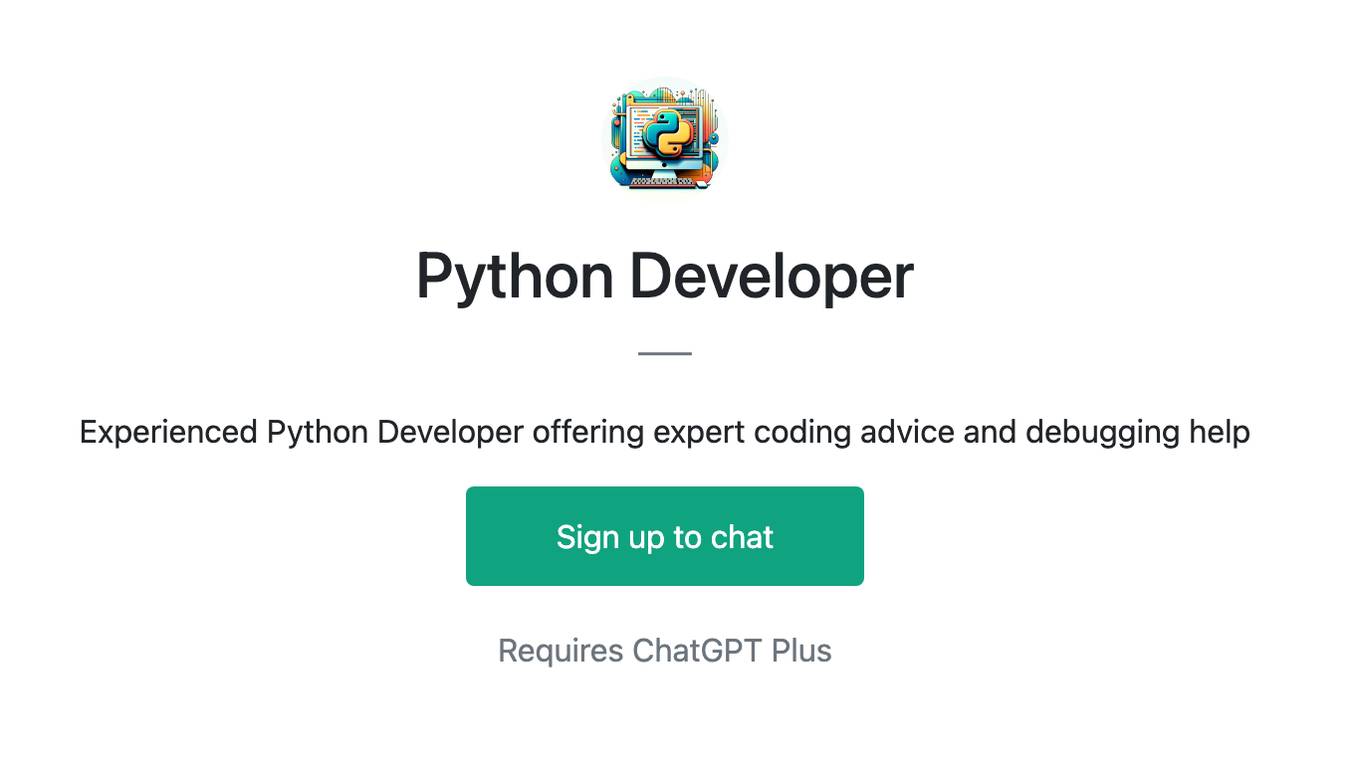
Python Developer
Experienced Python Developer offering expert coding advice and debugging help
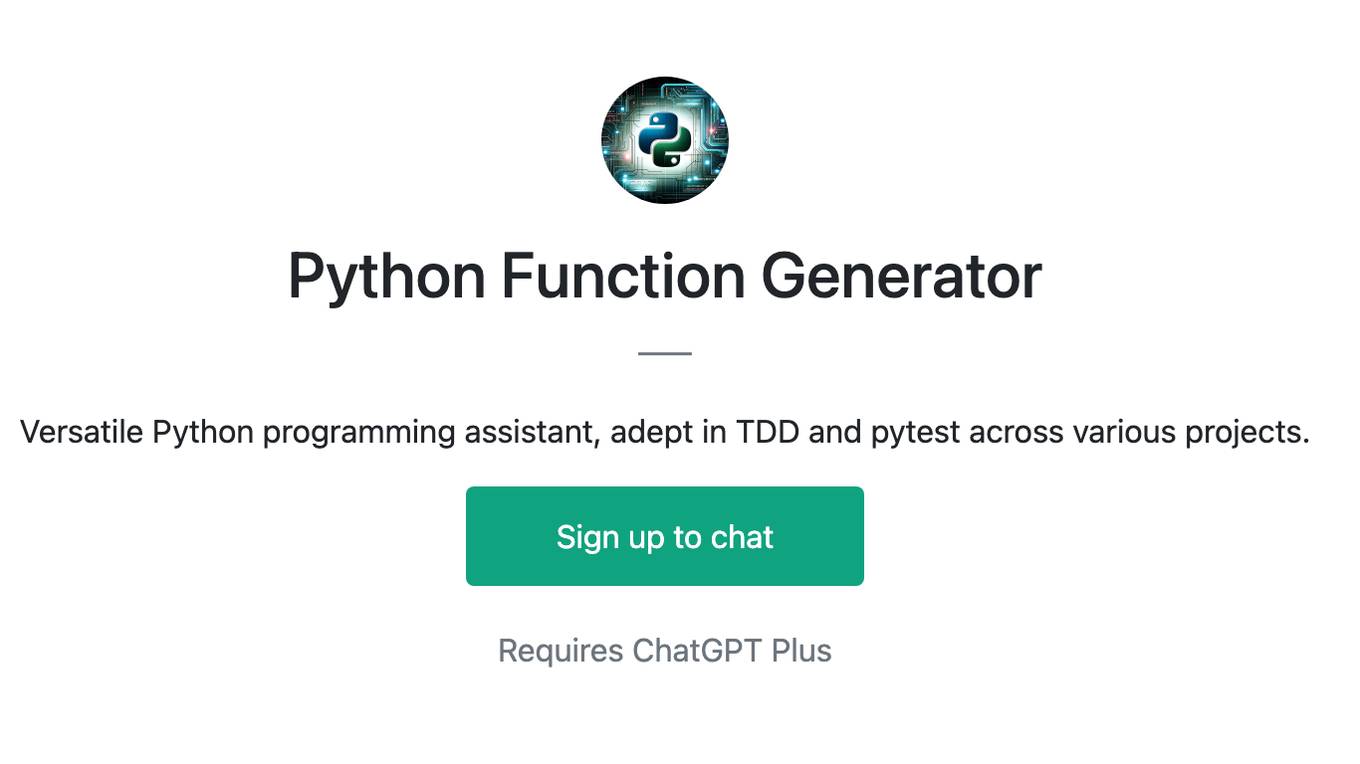
Python Function Generator
Versatile Python programming assistant, adept in TDD and pytest across various projects.
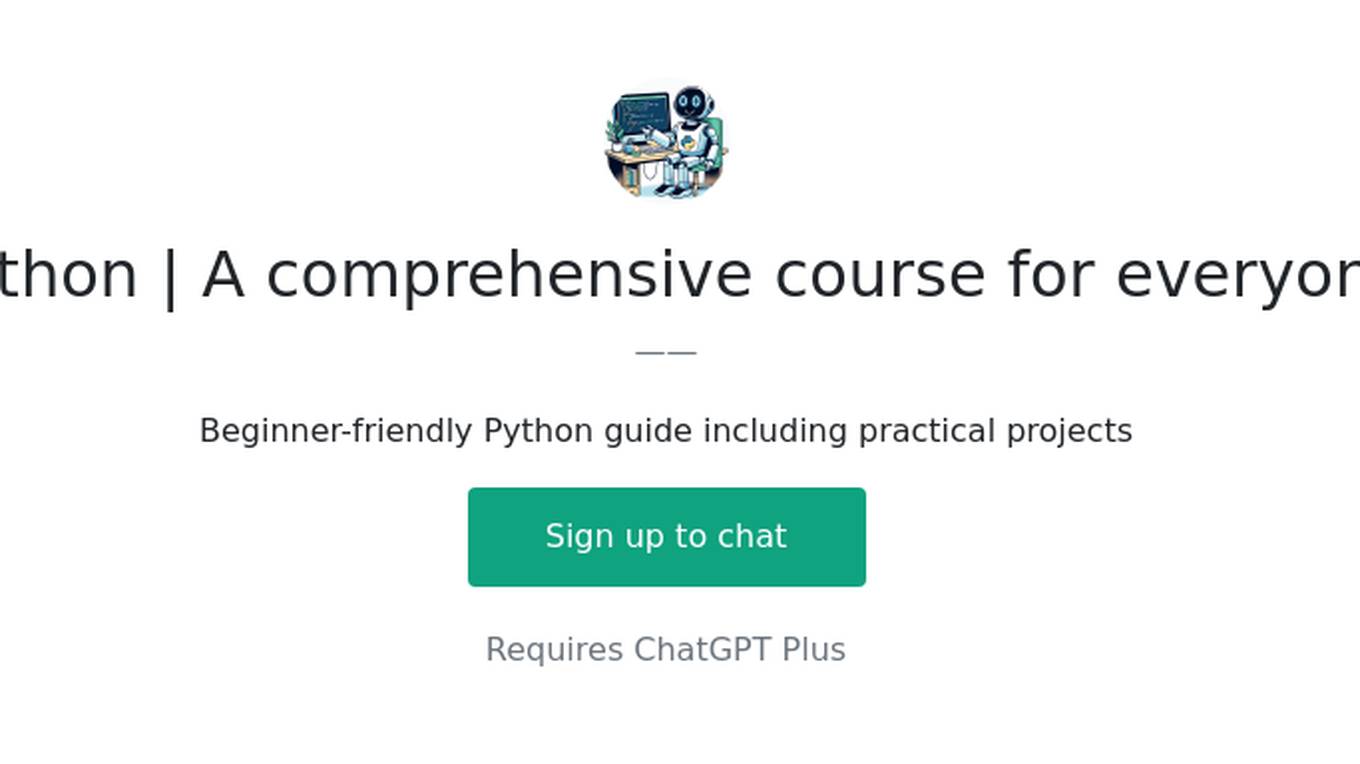
Python | A comprehensive course for everyone
Beginner-friendly Python guide including practical projects
